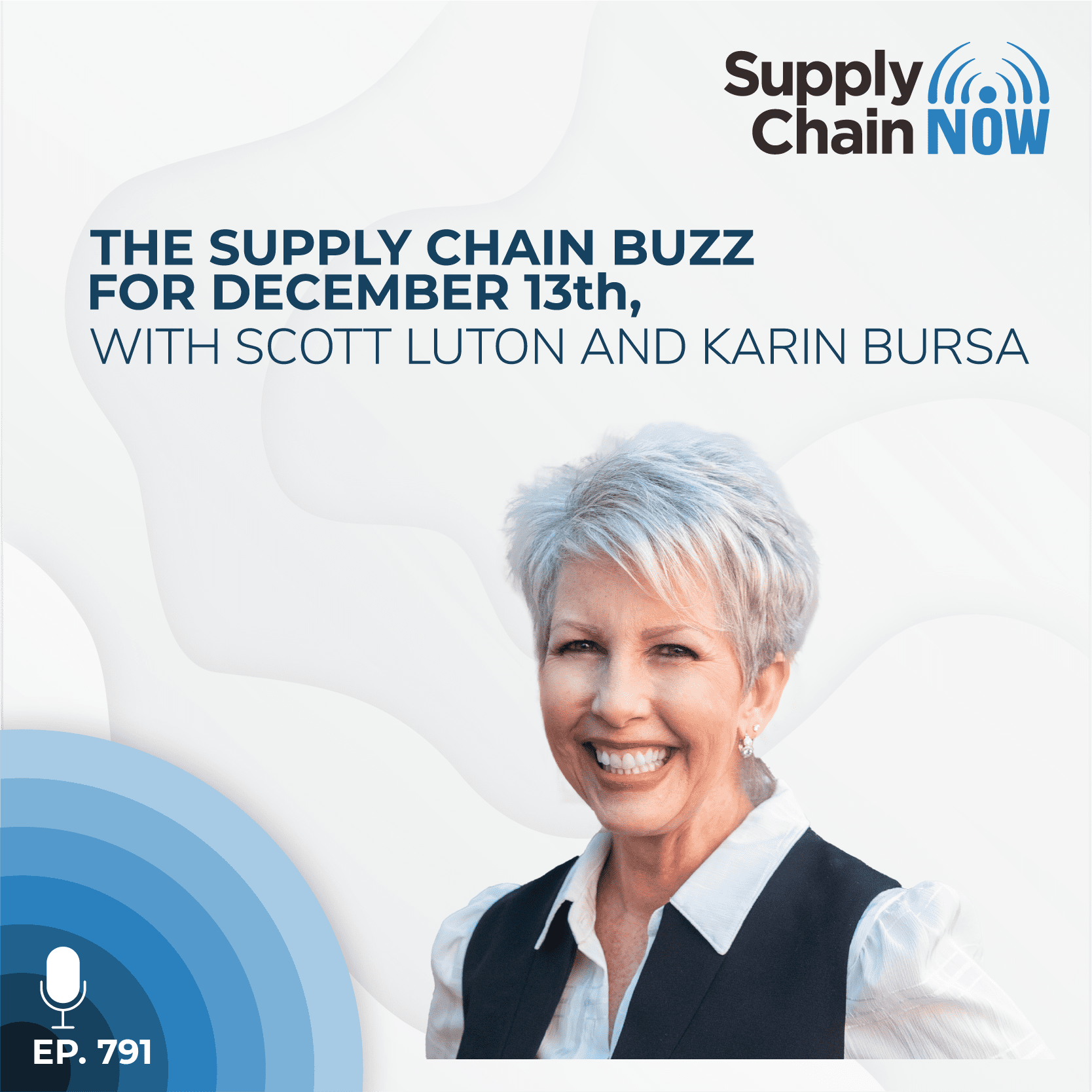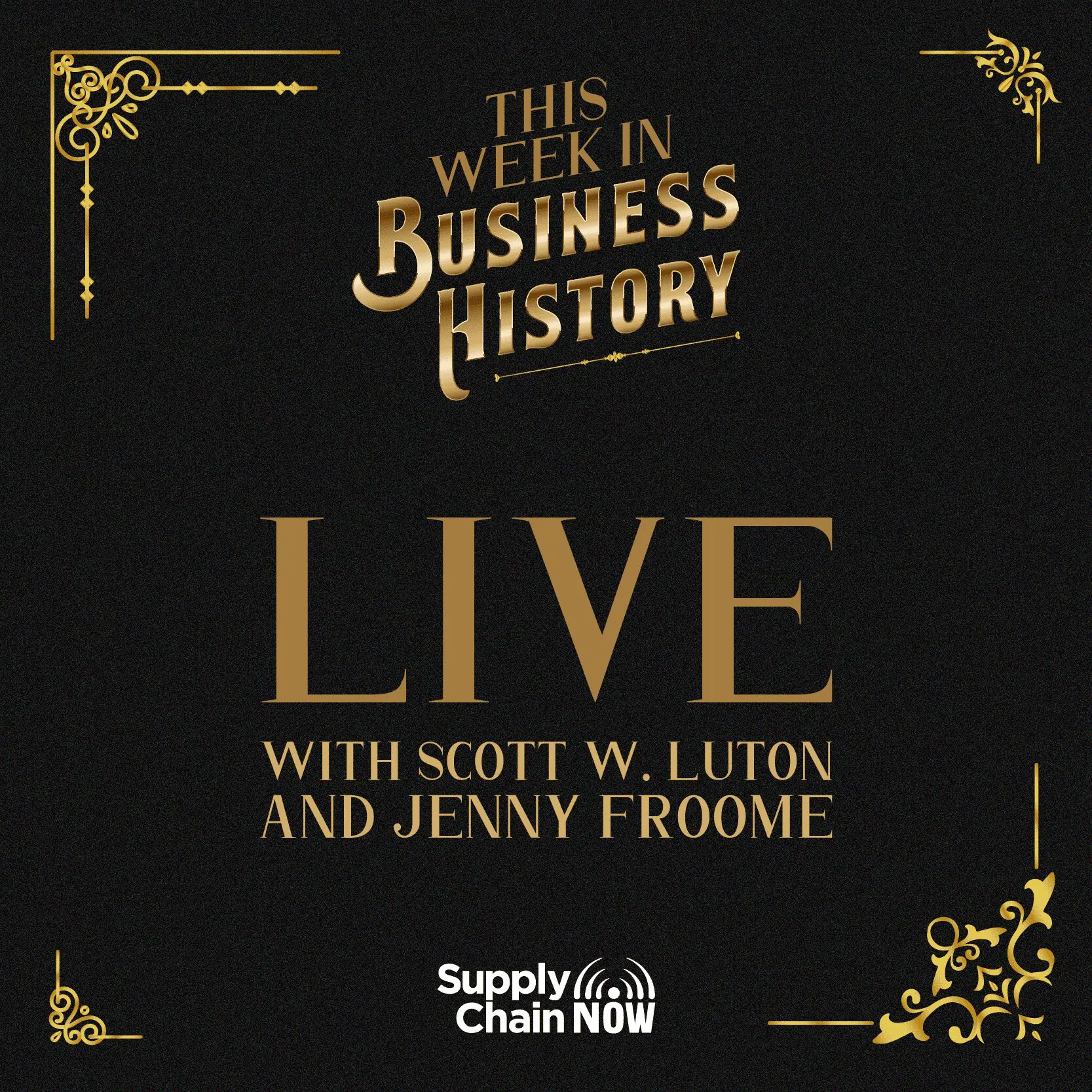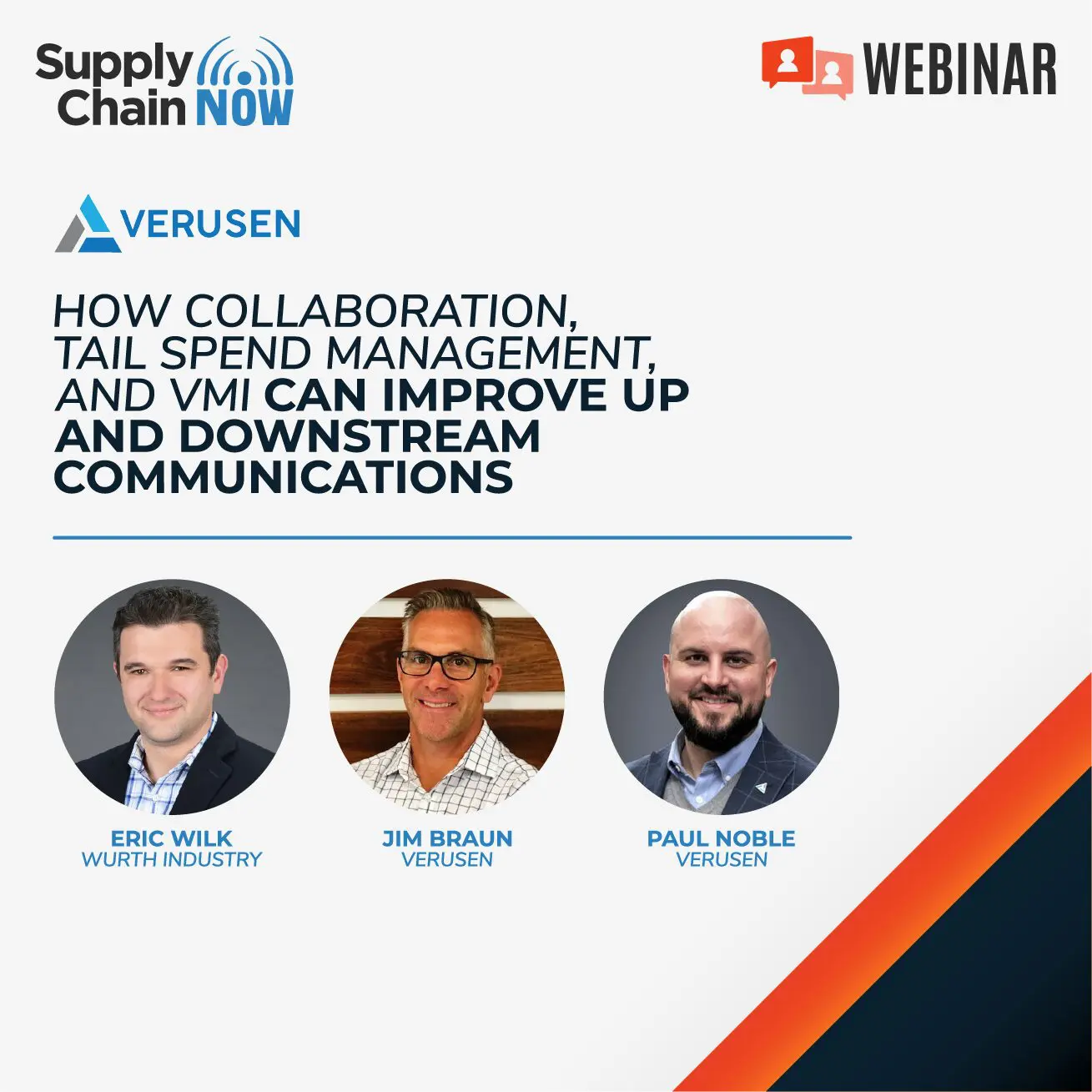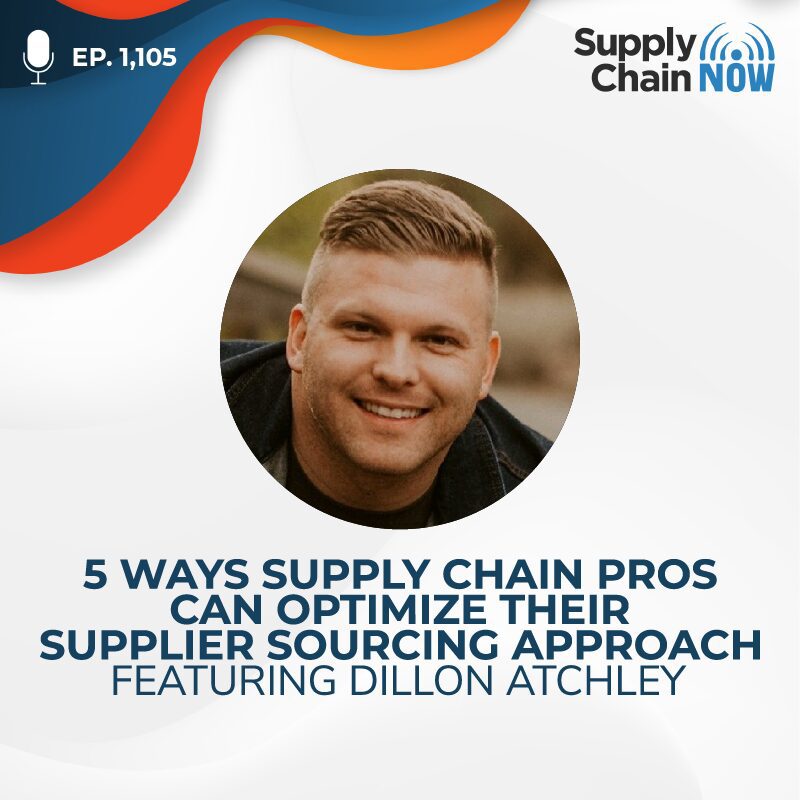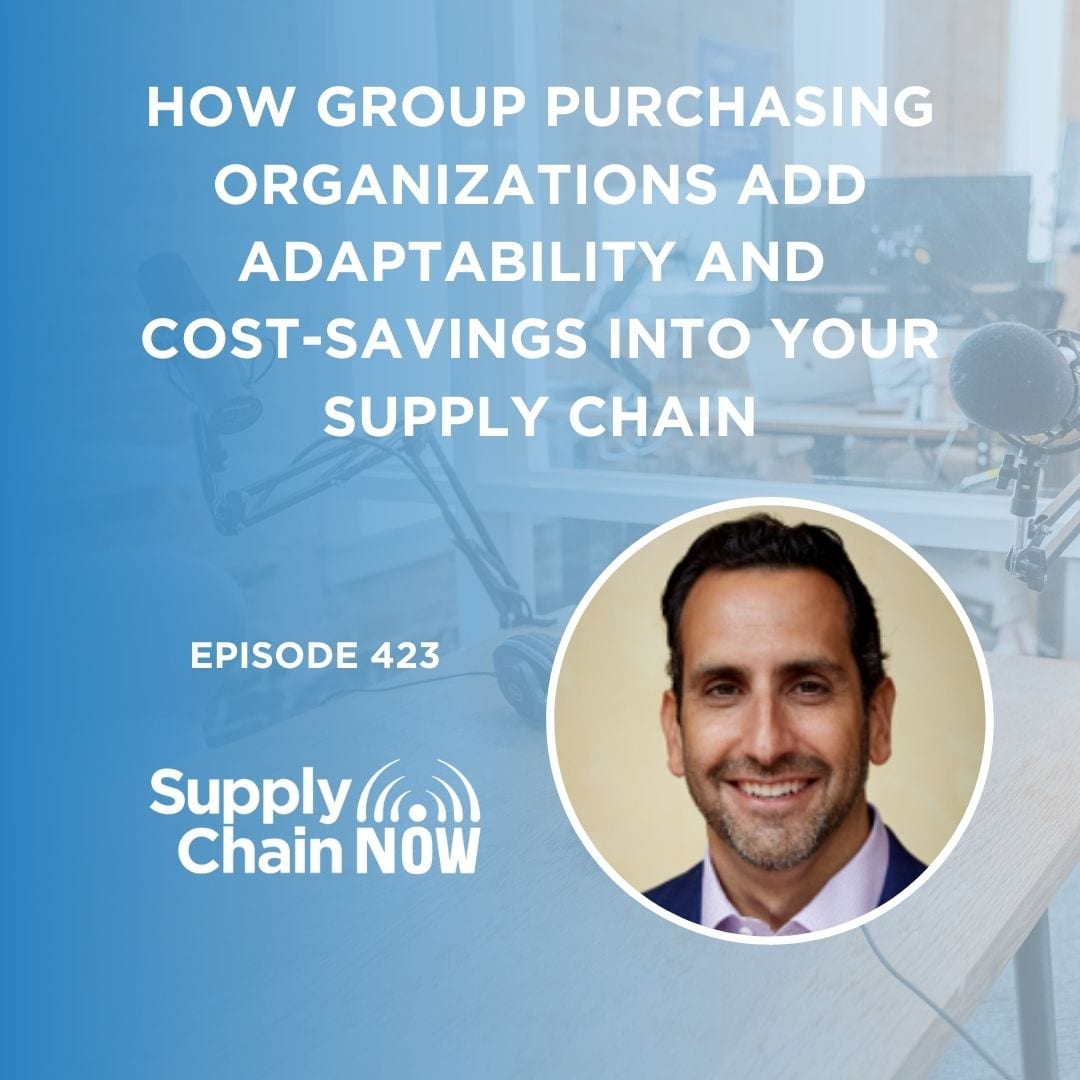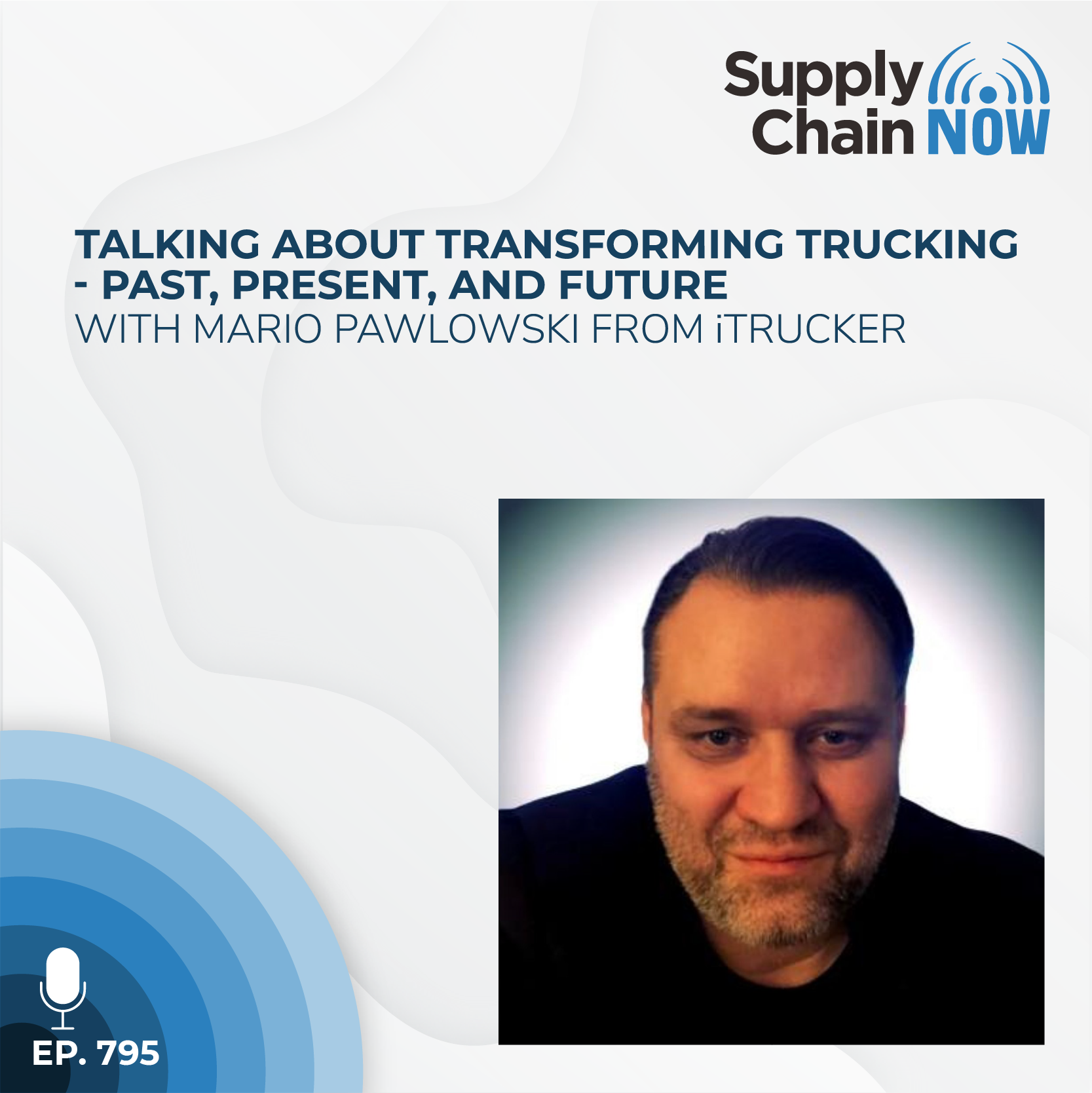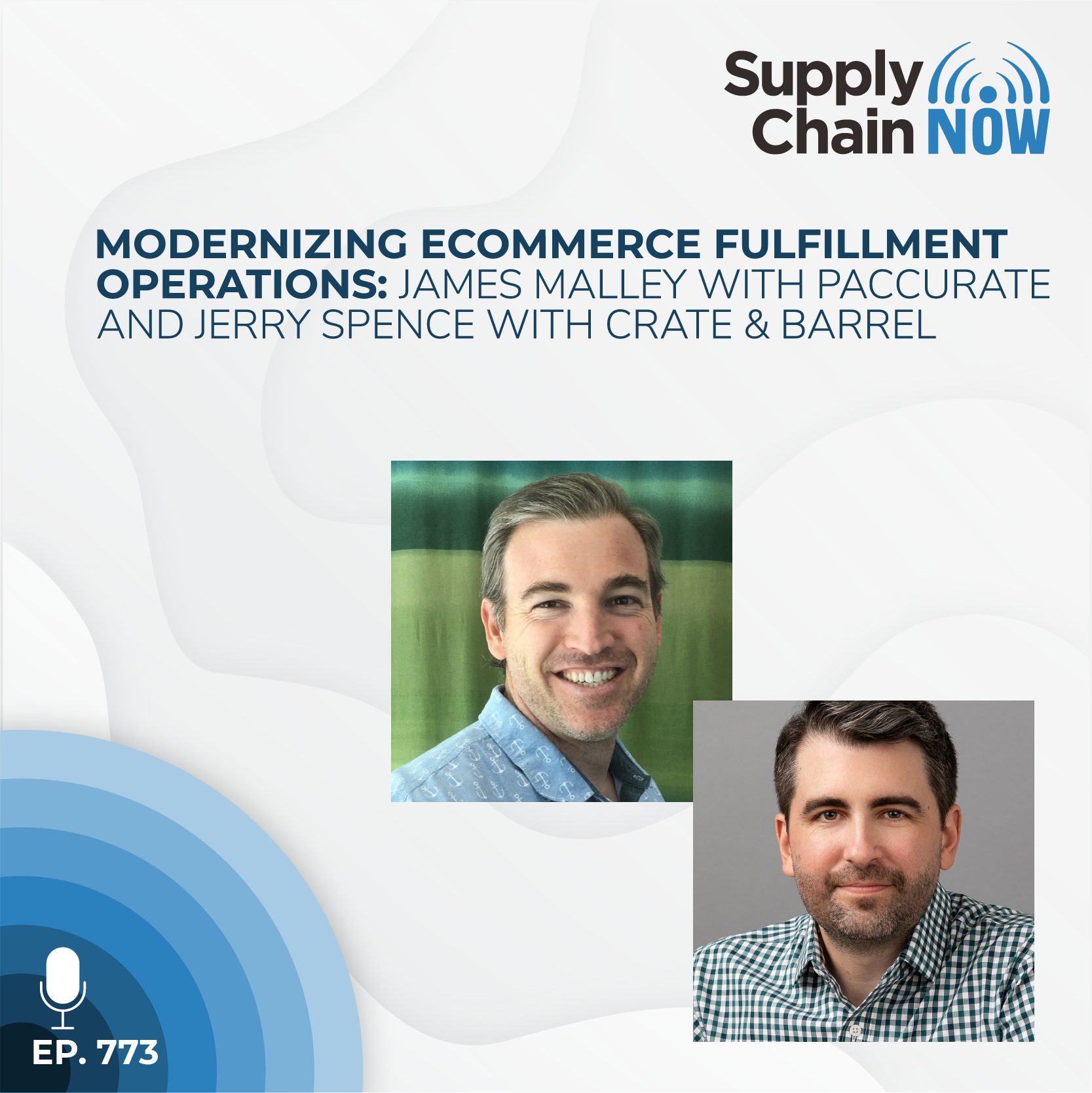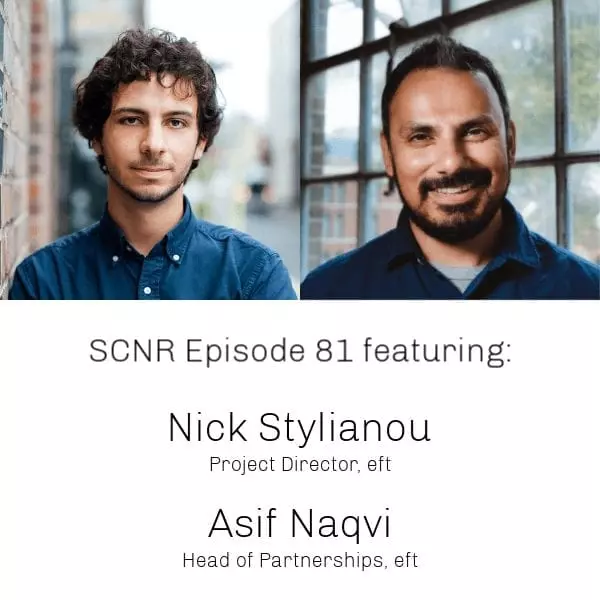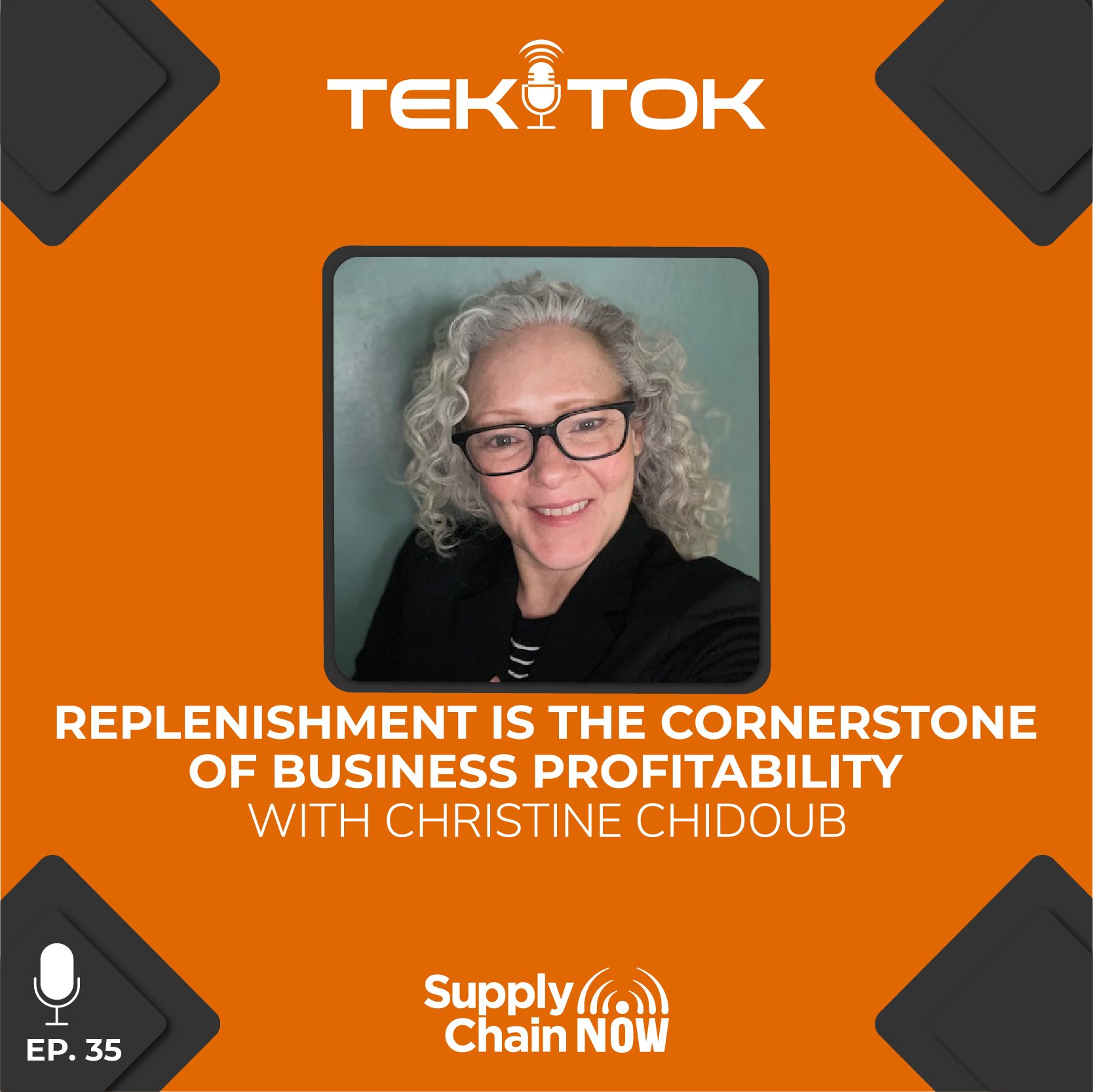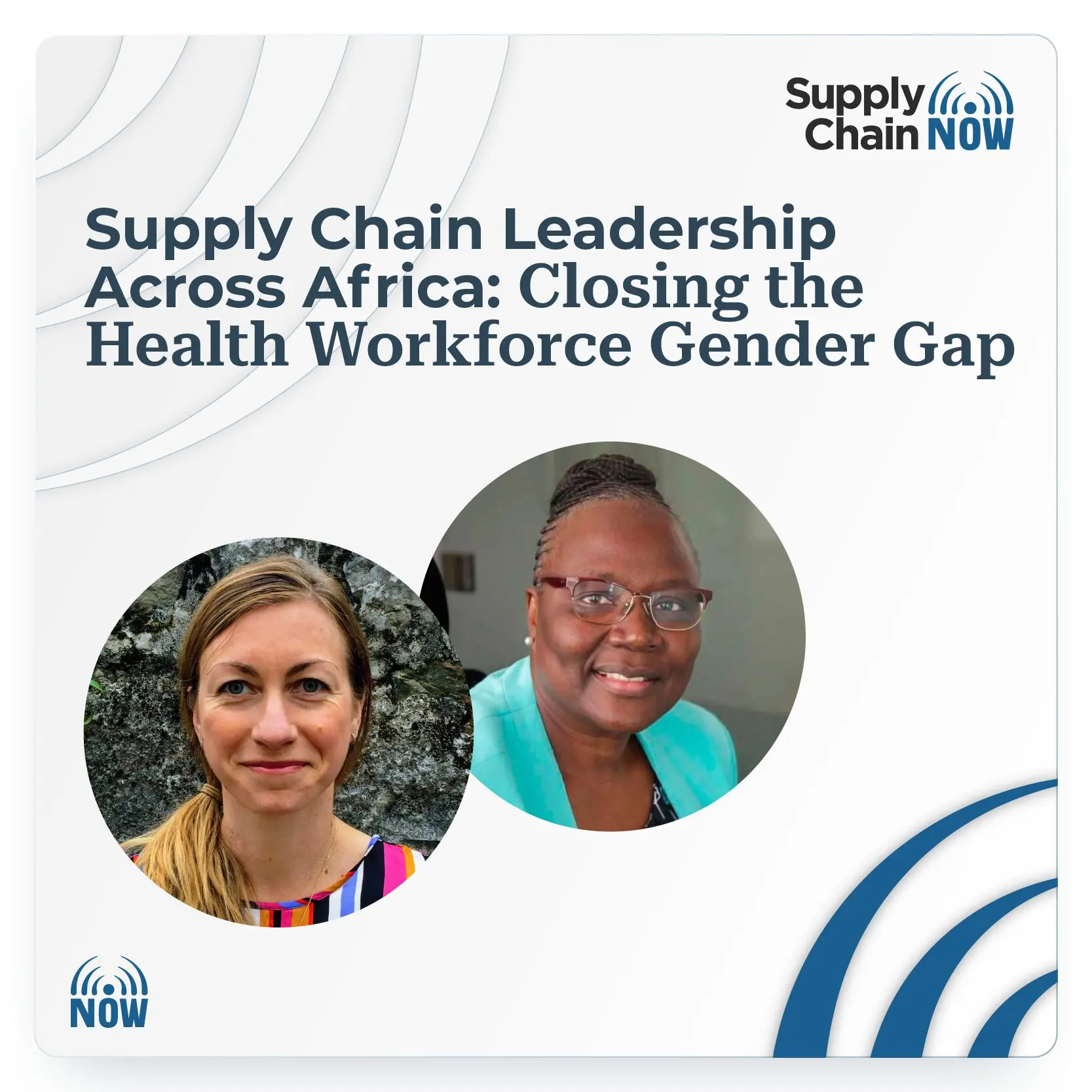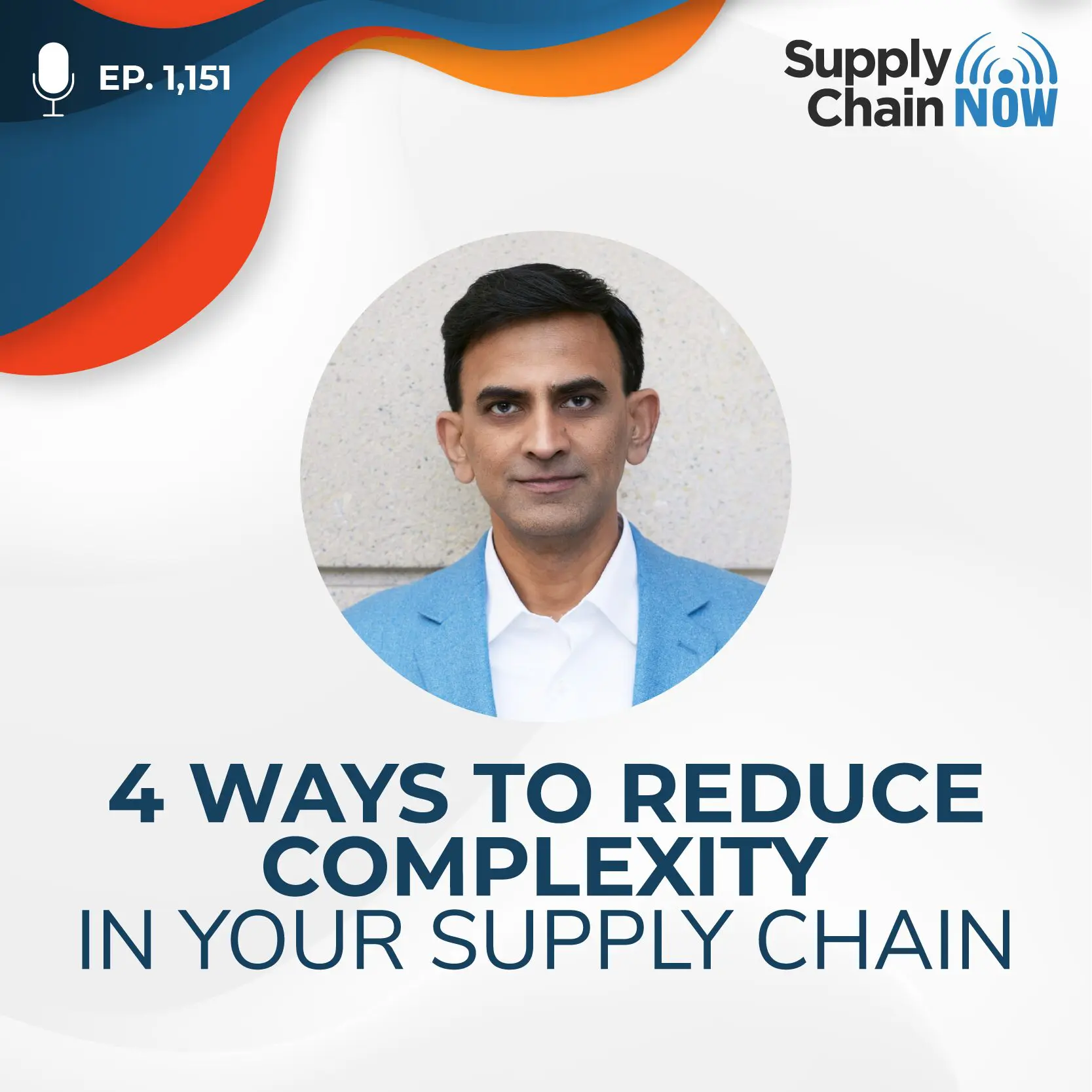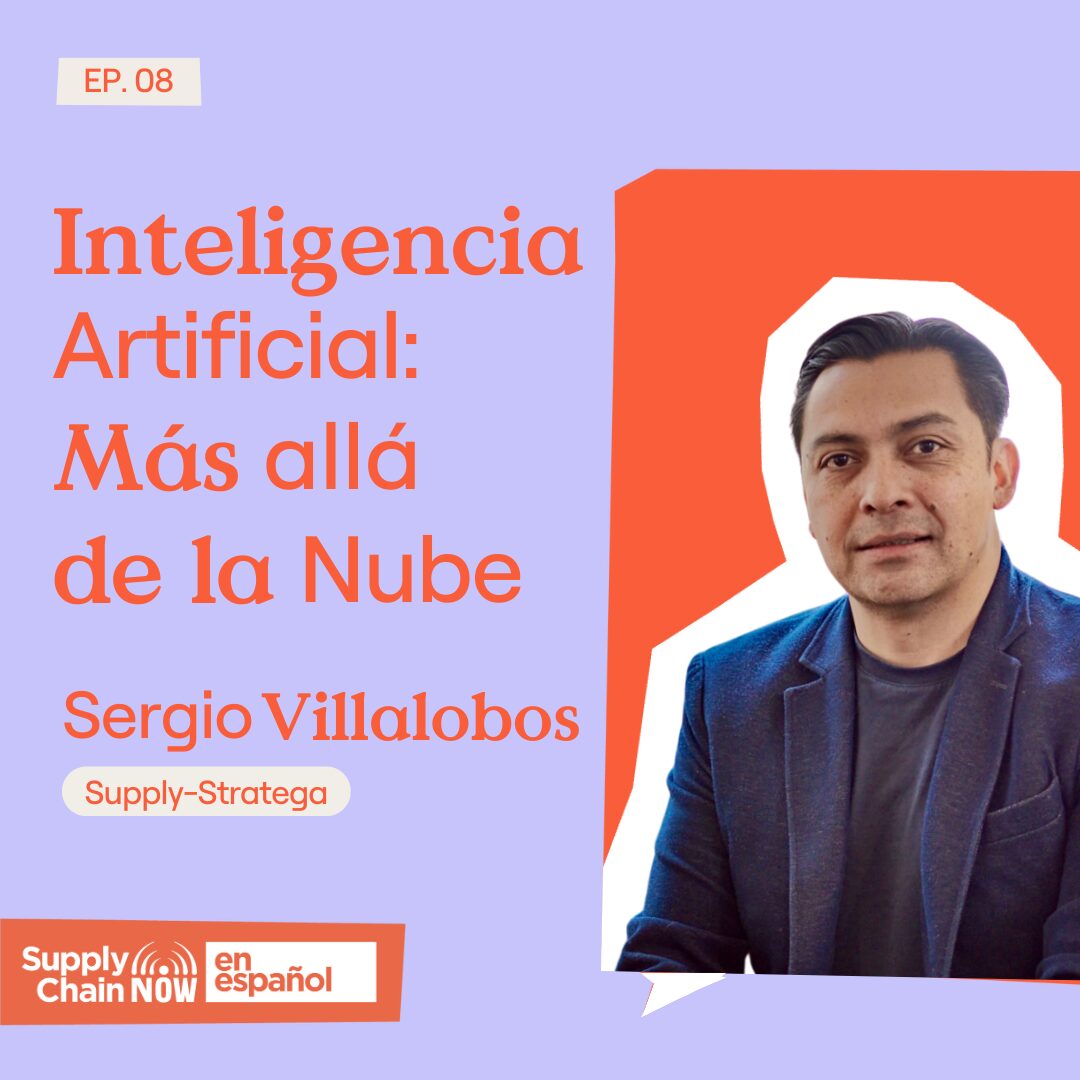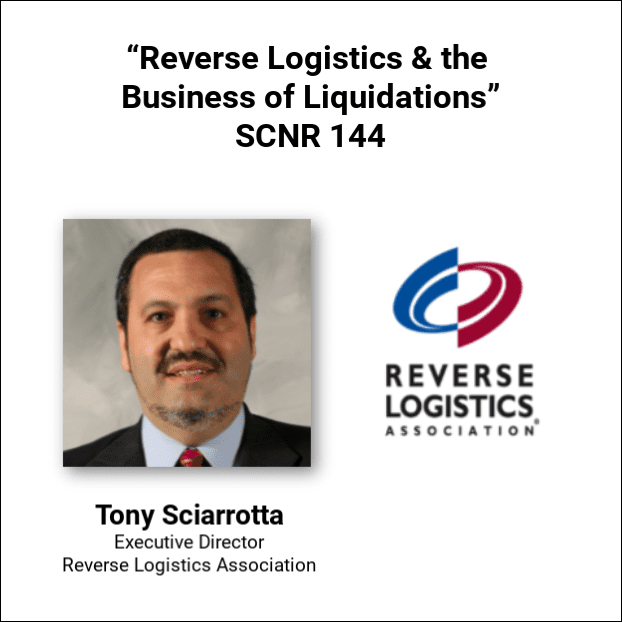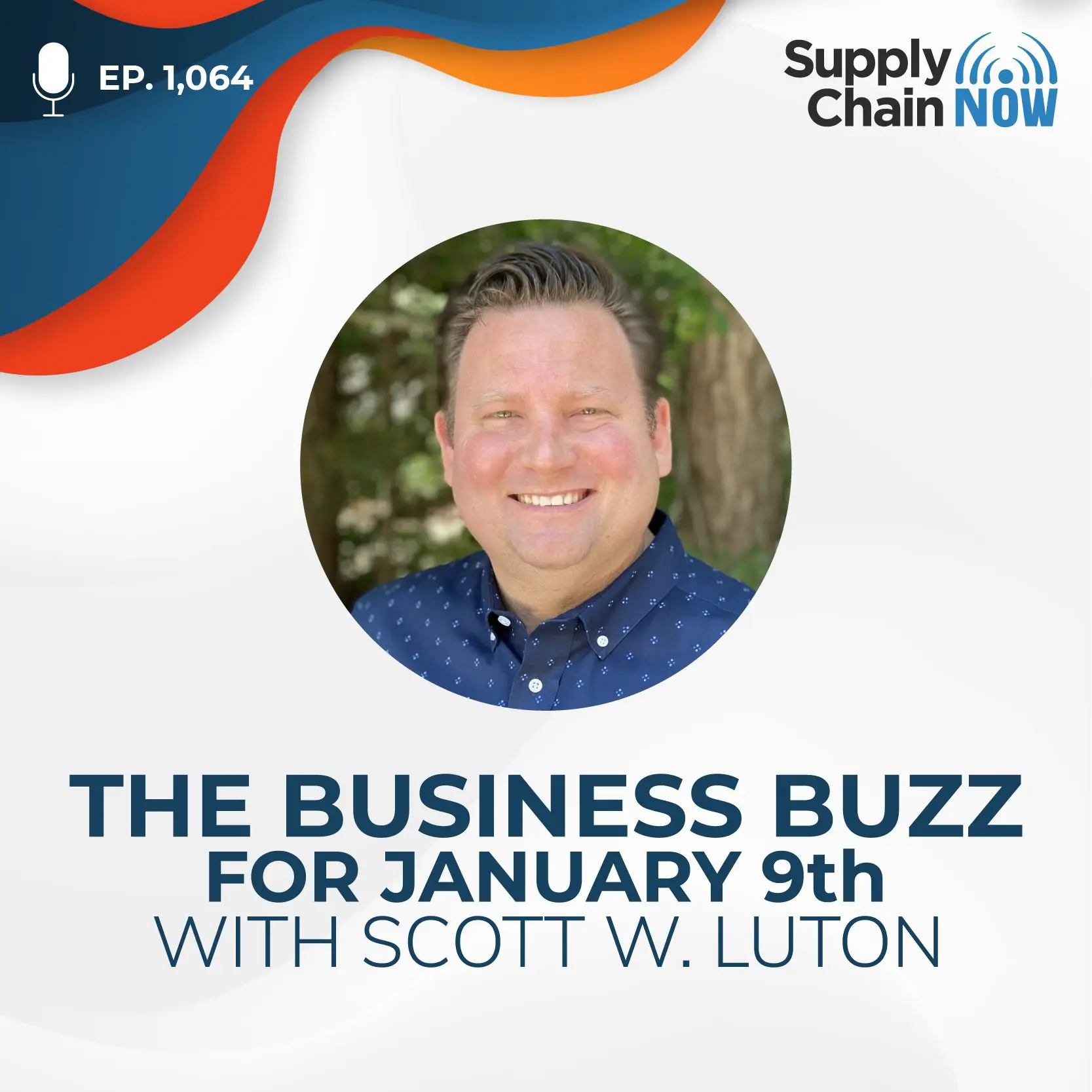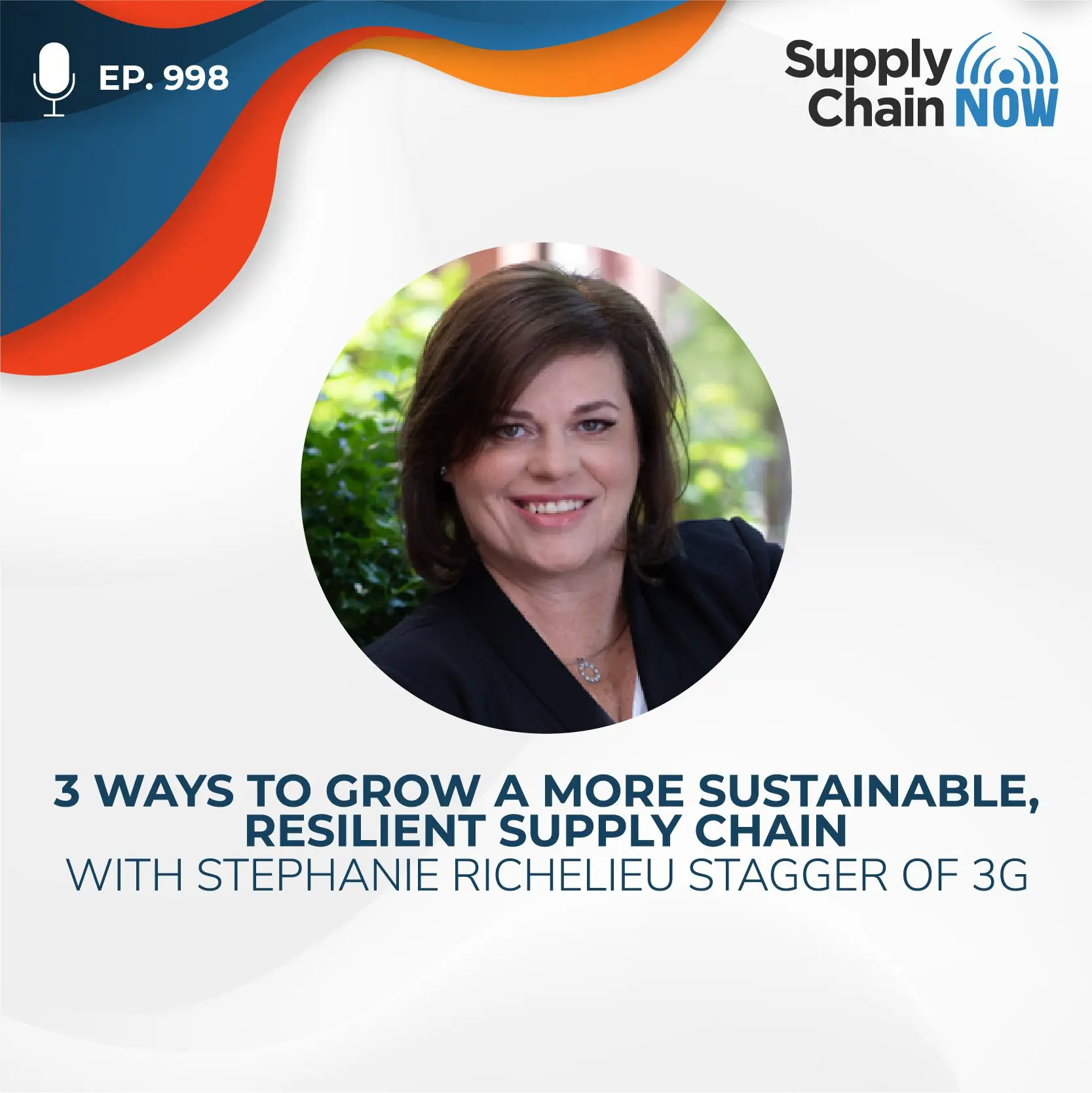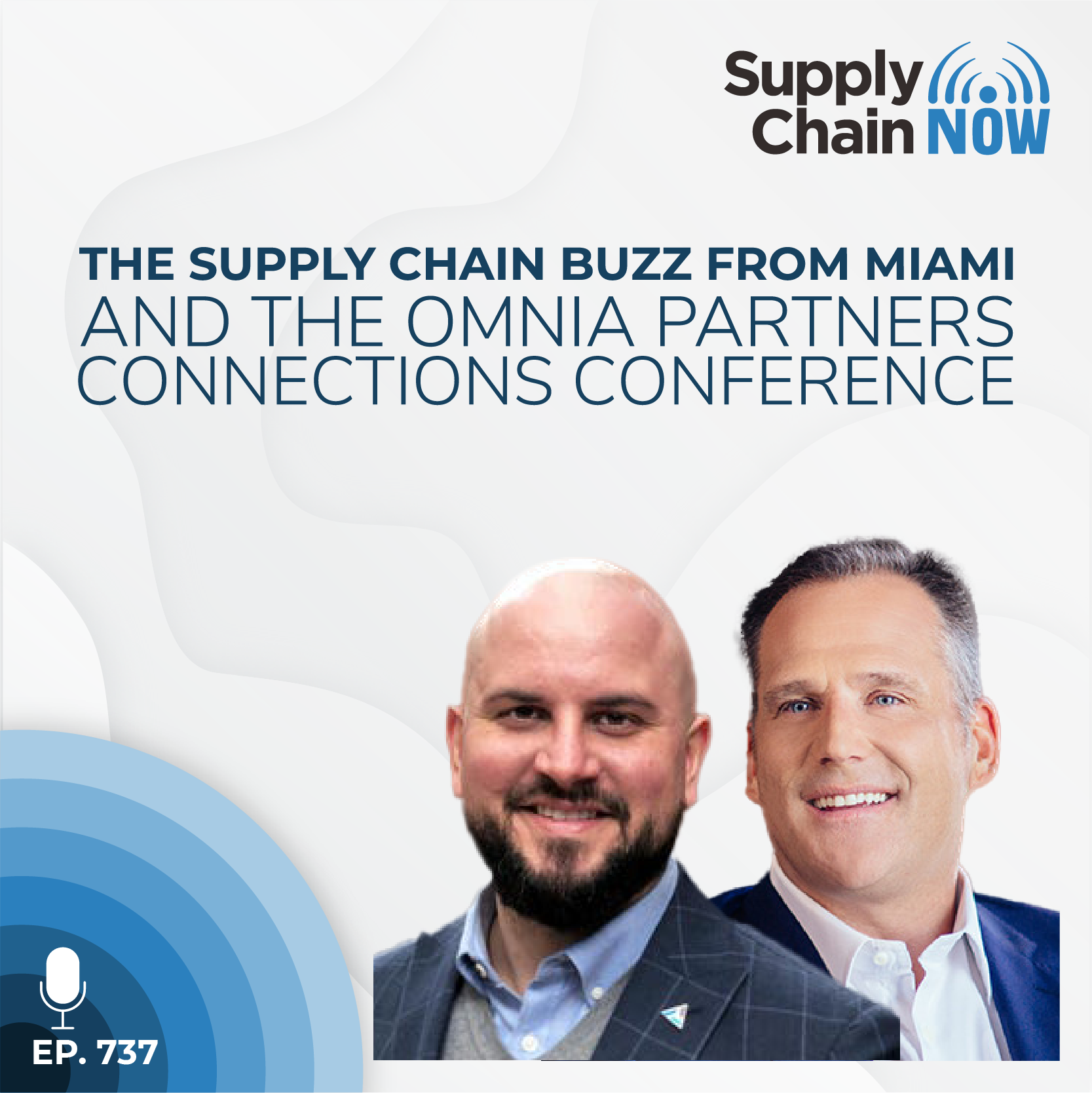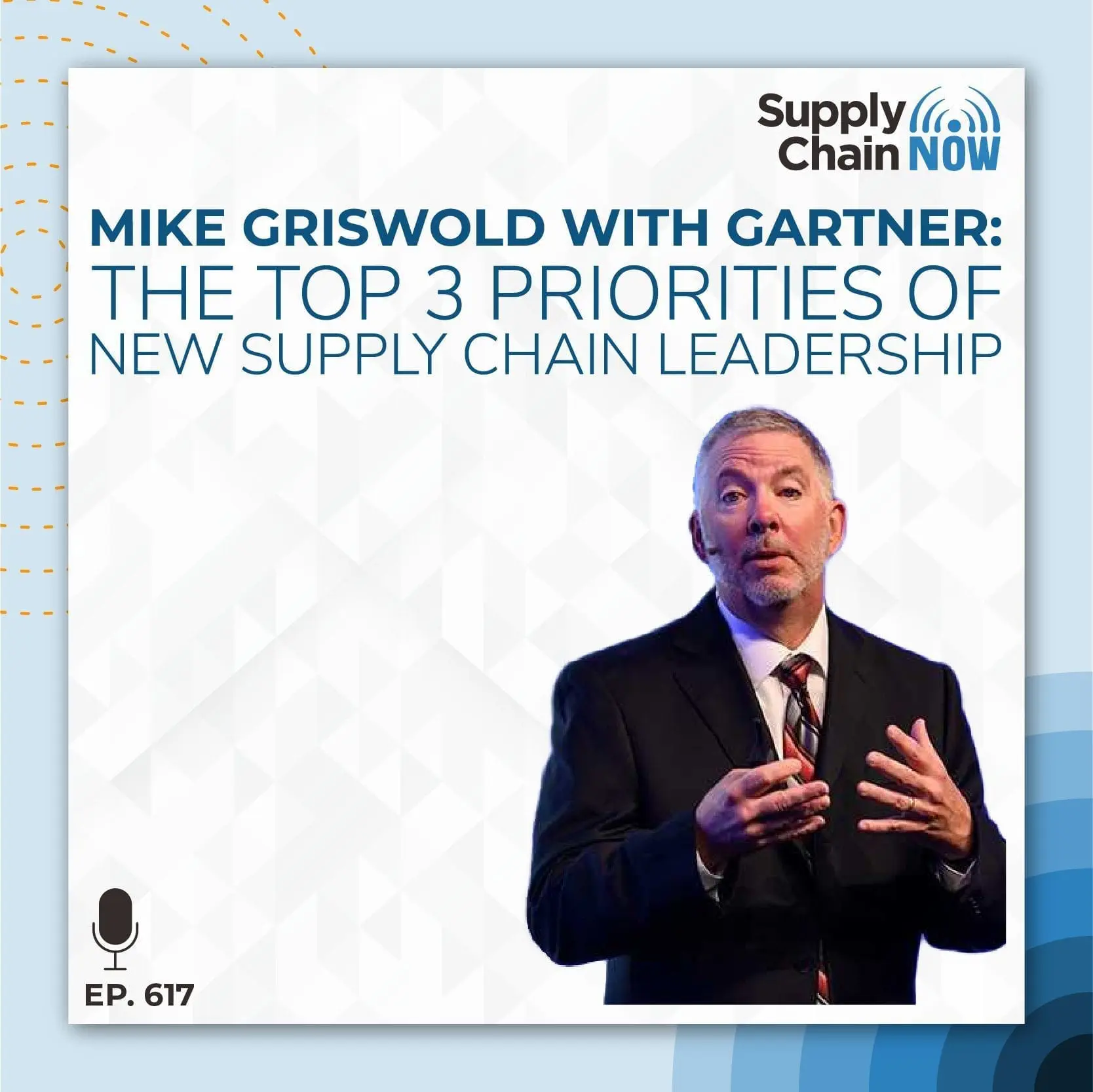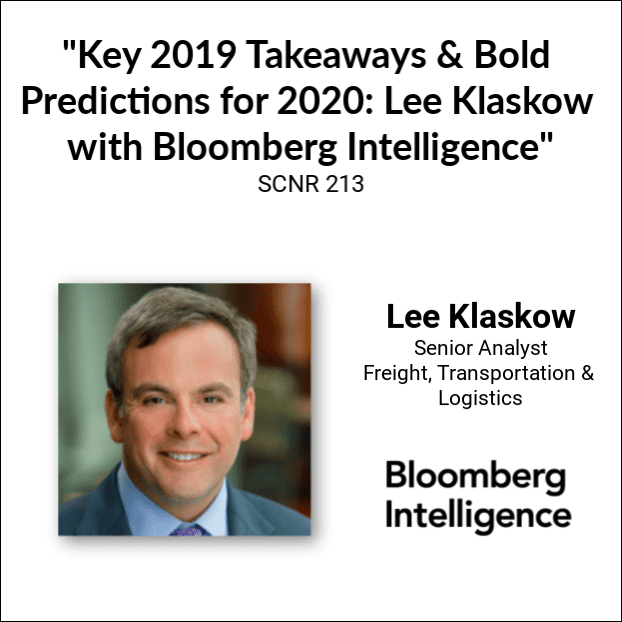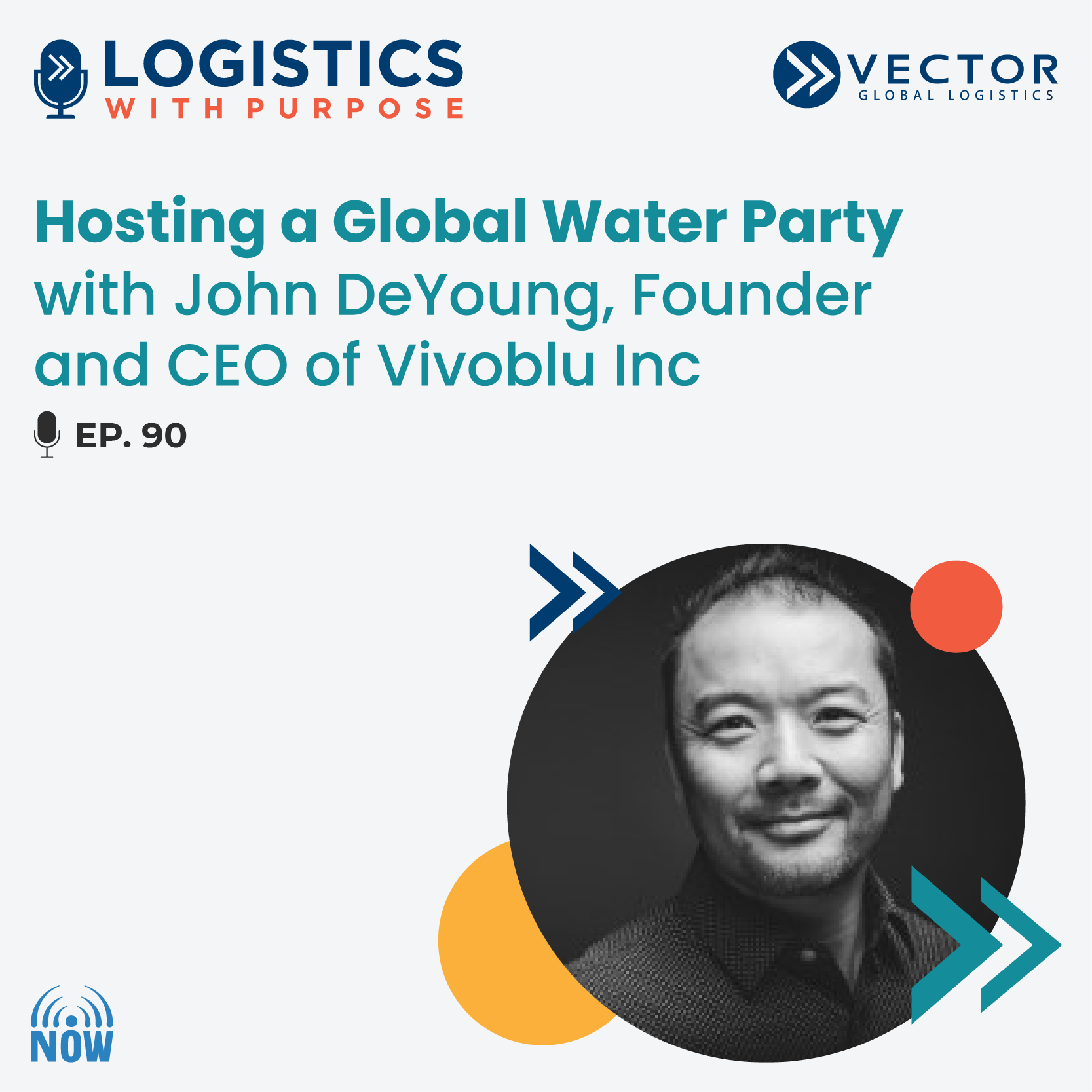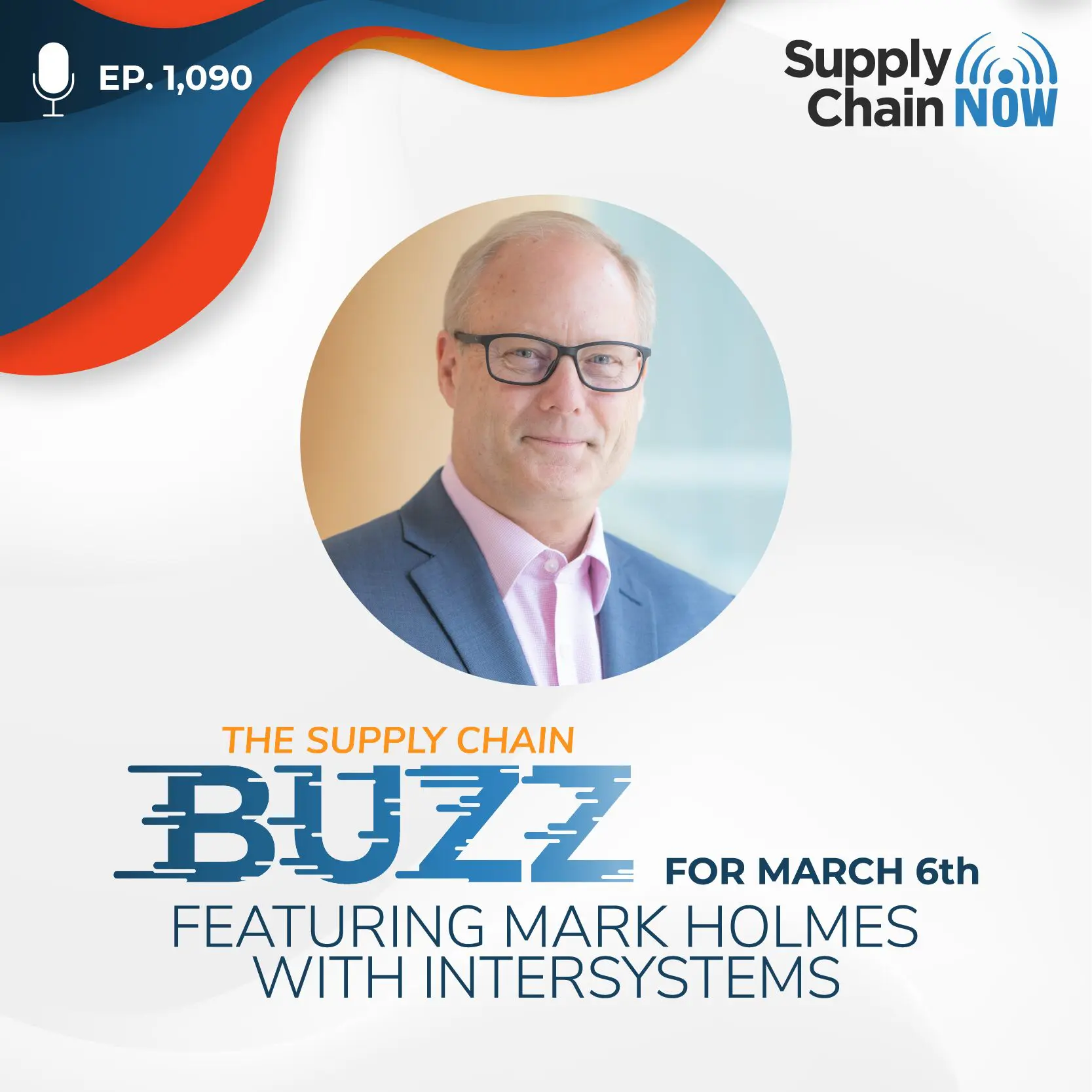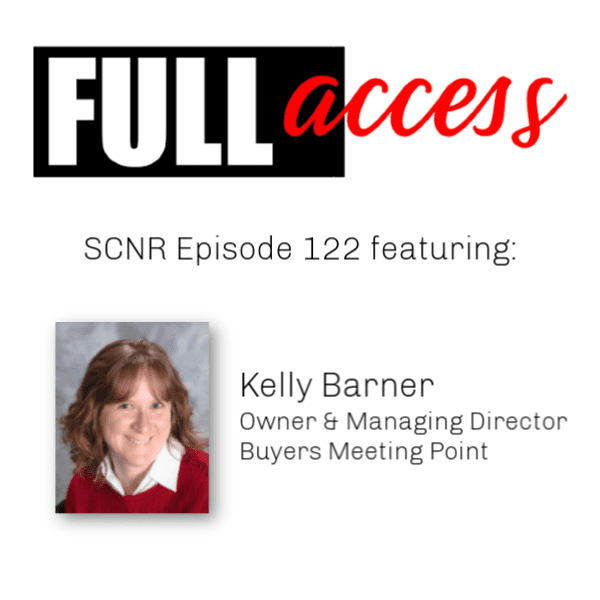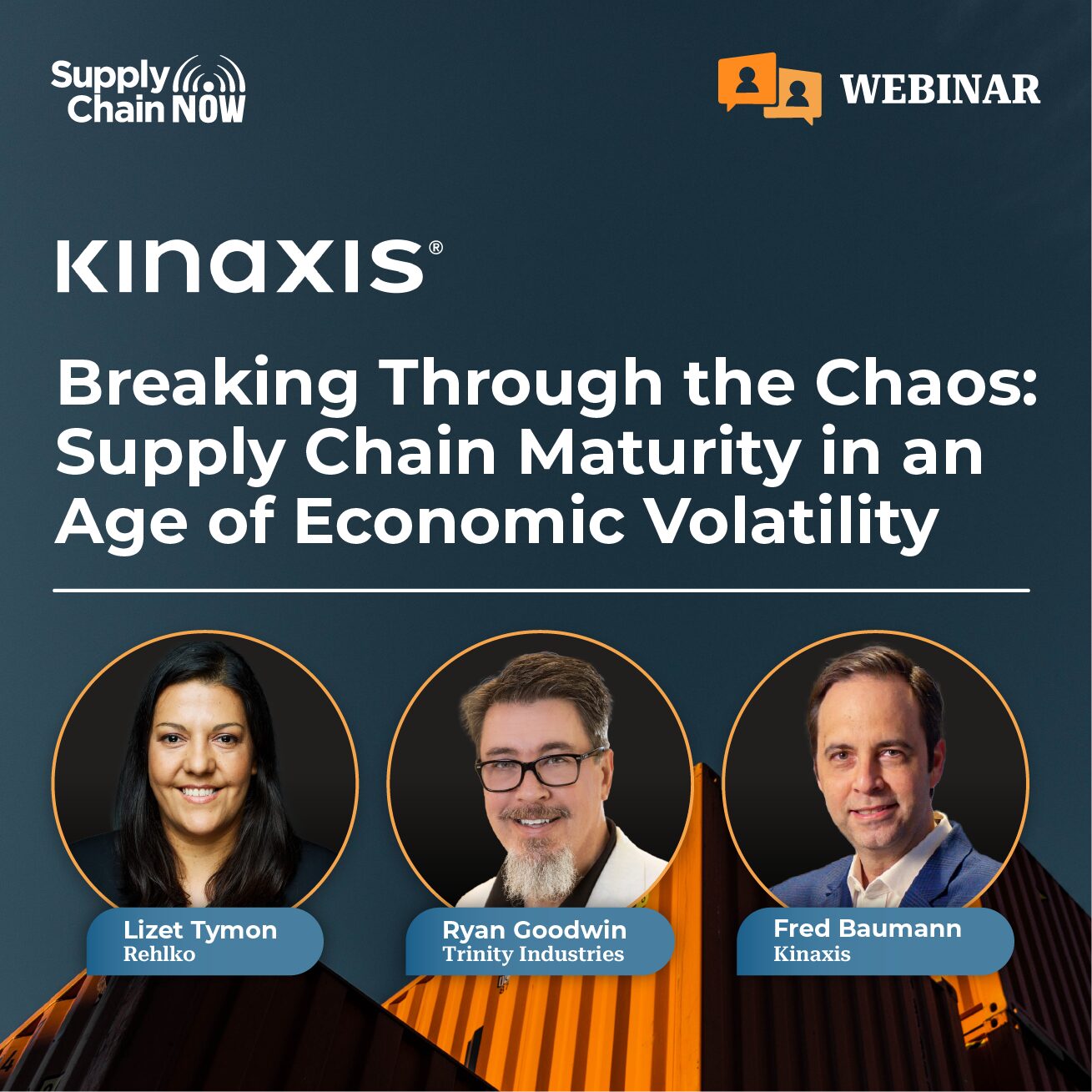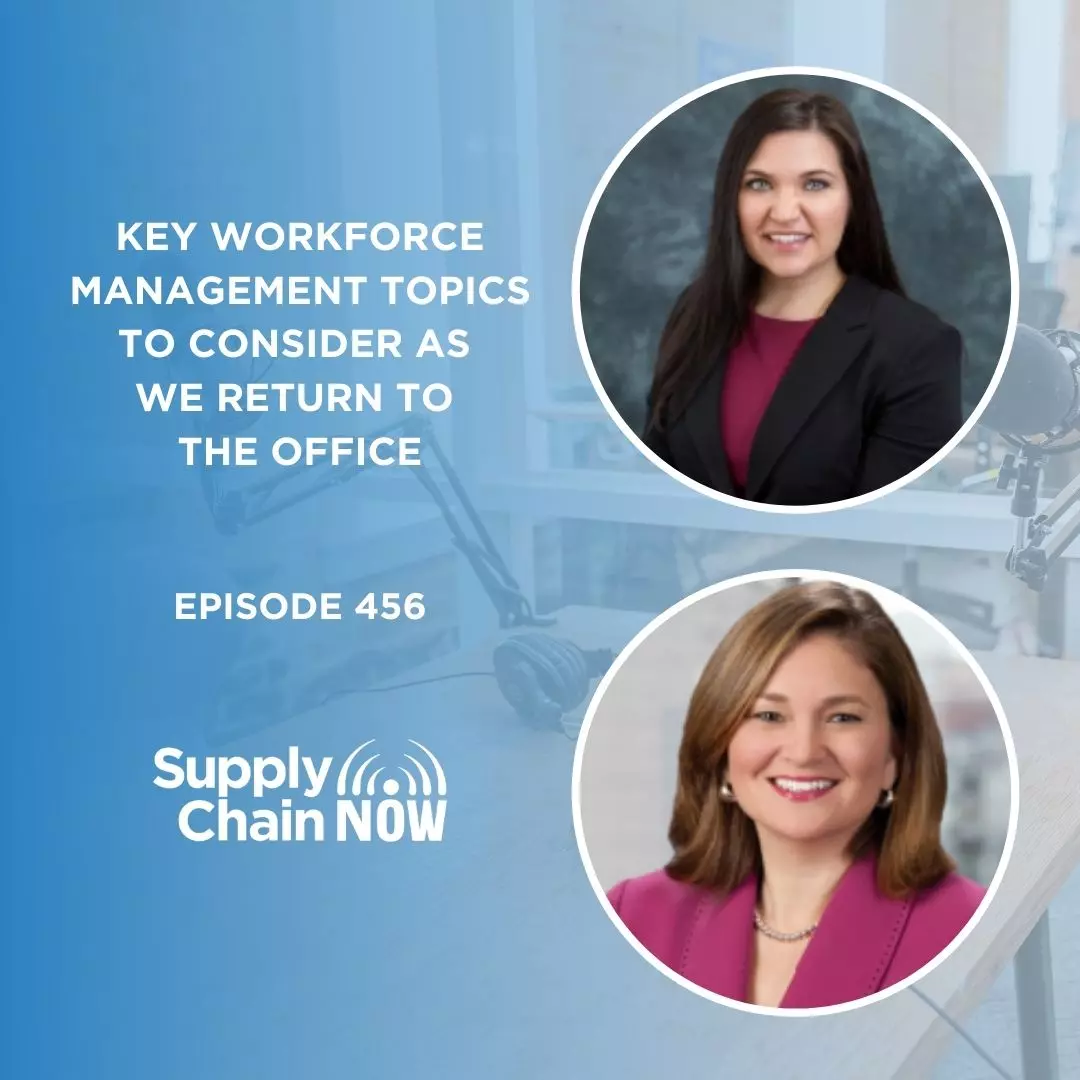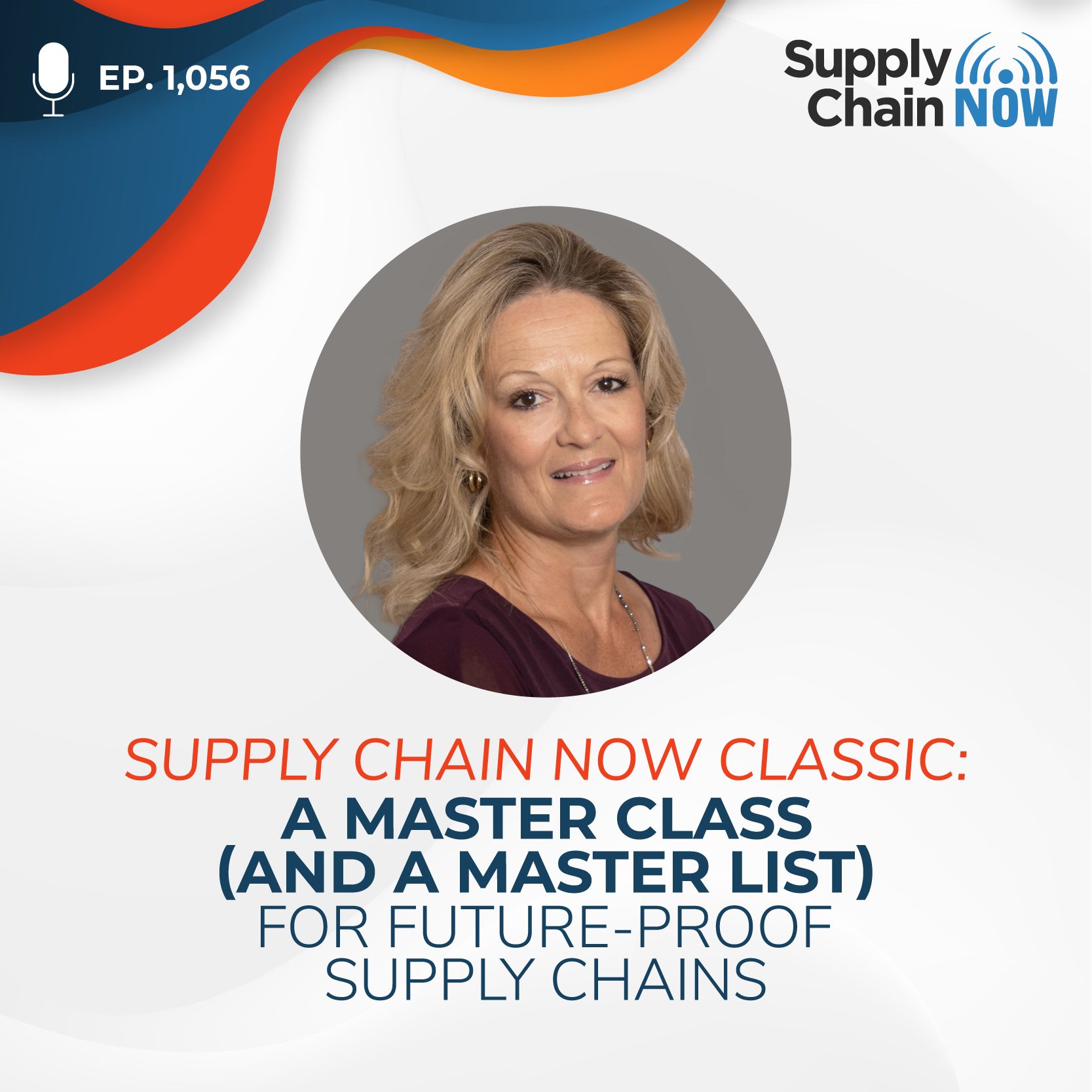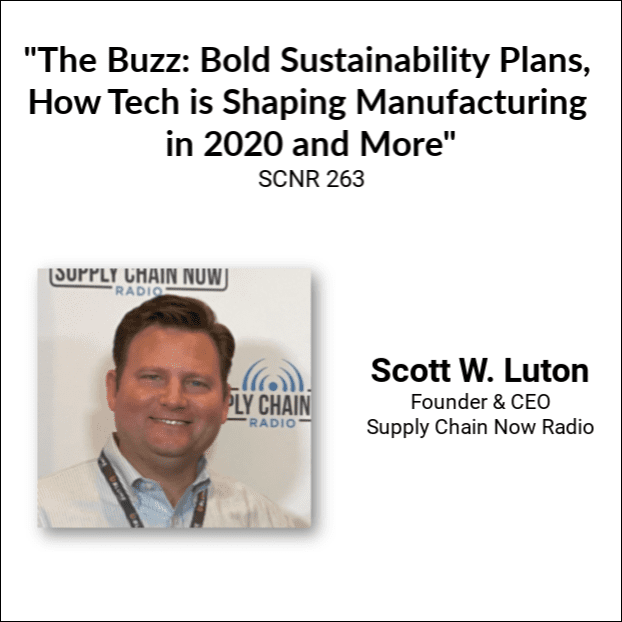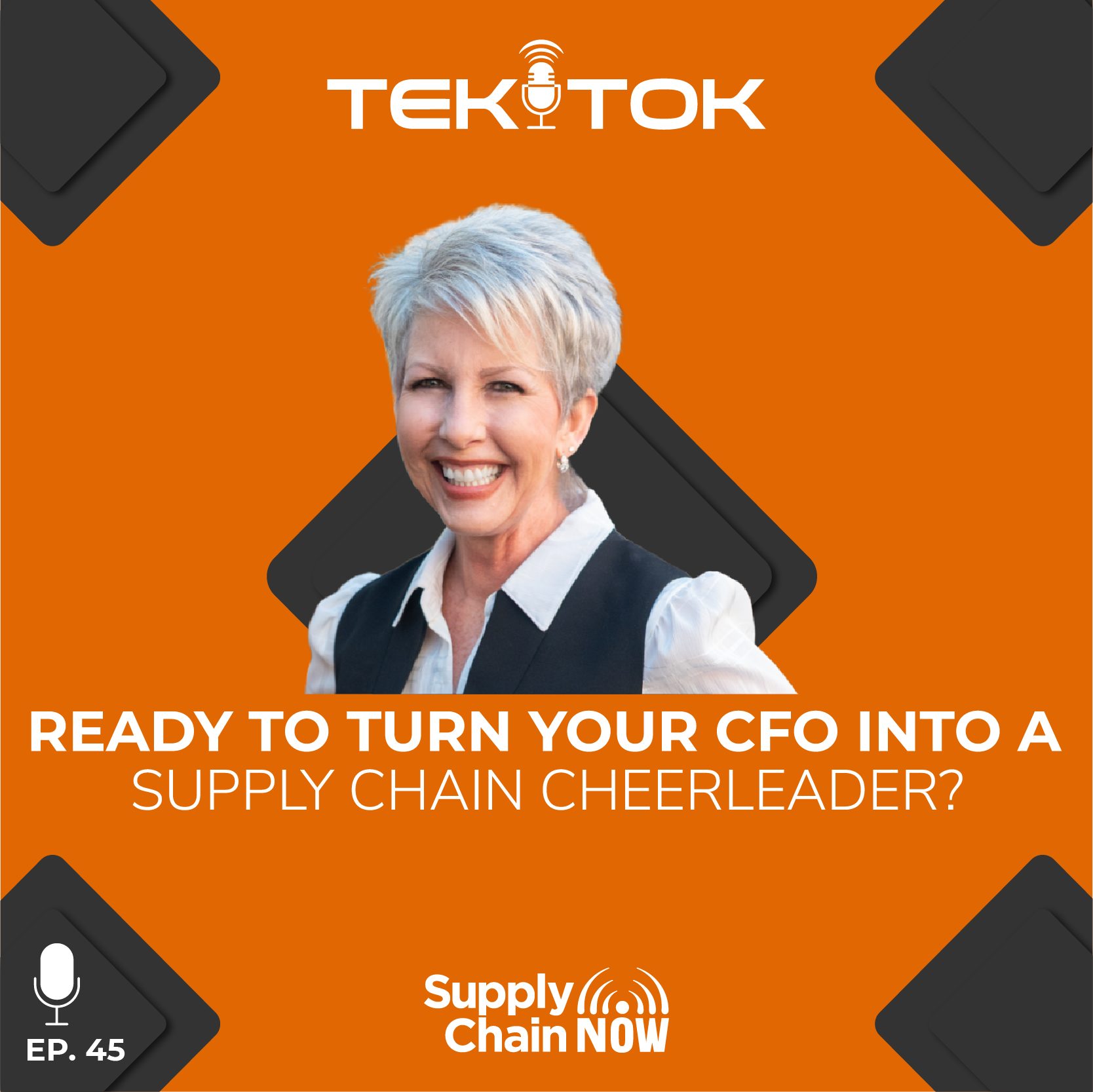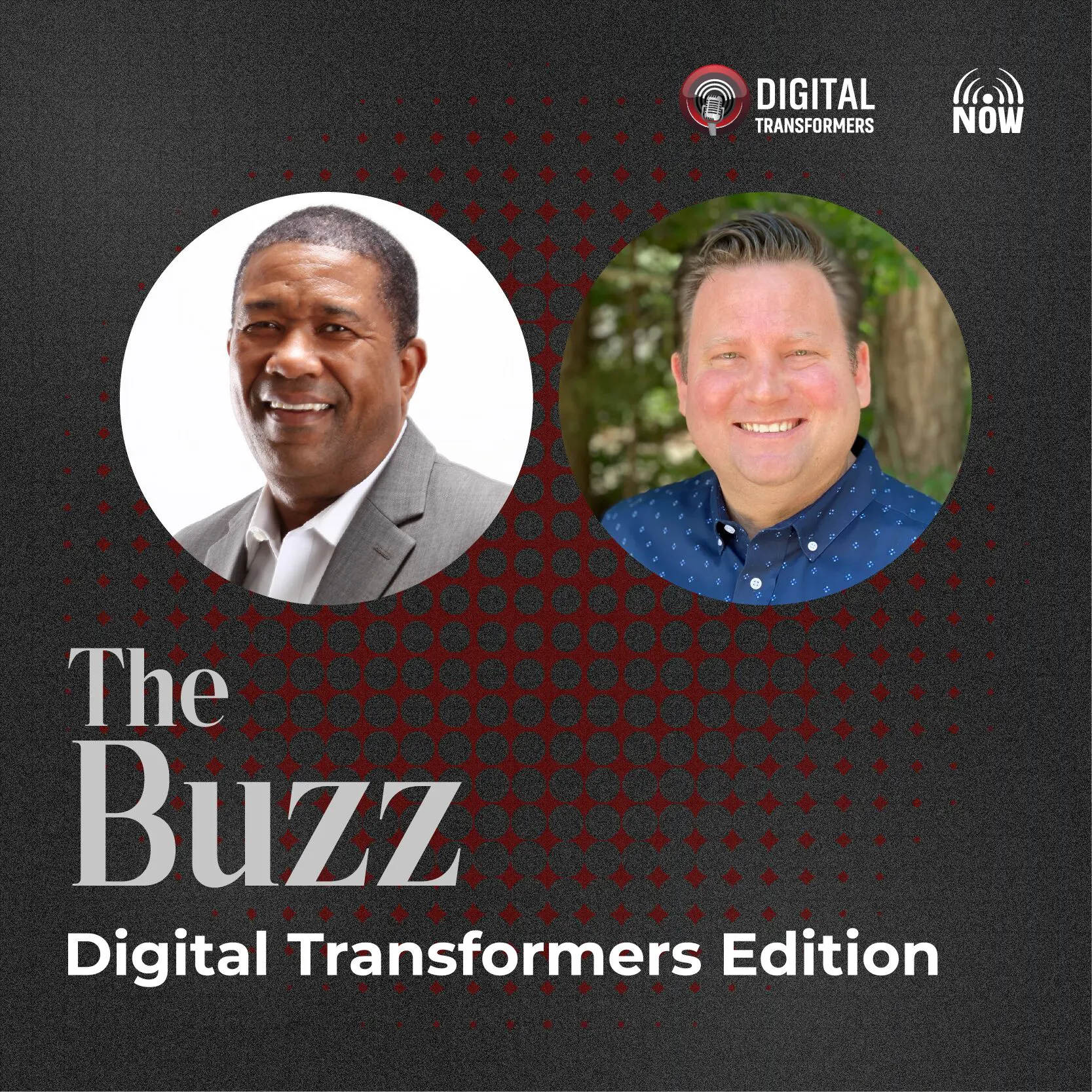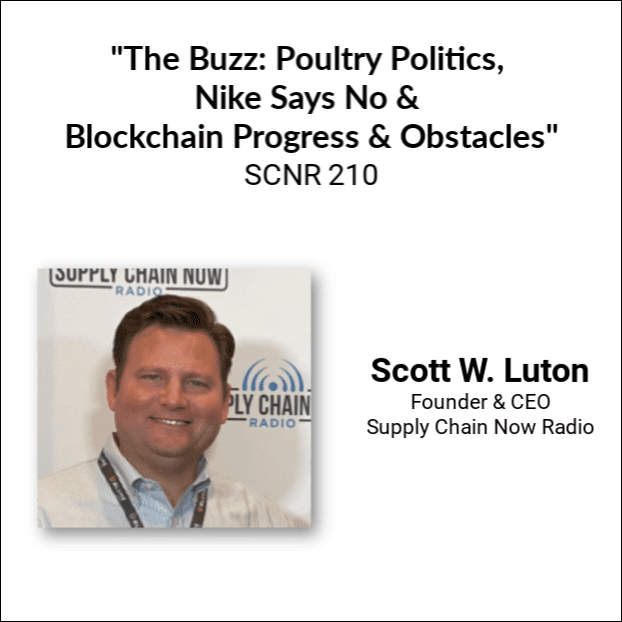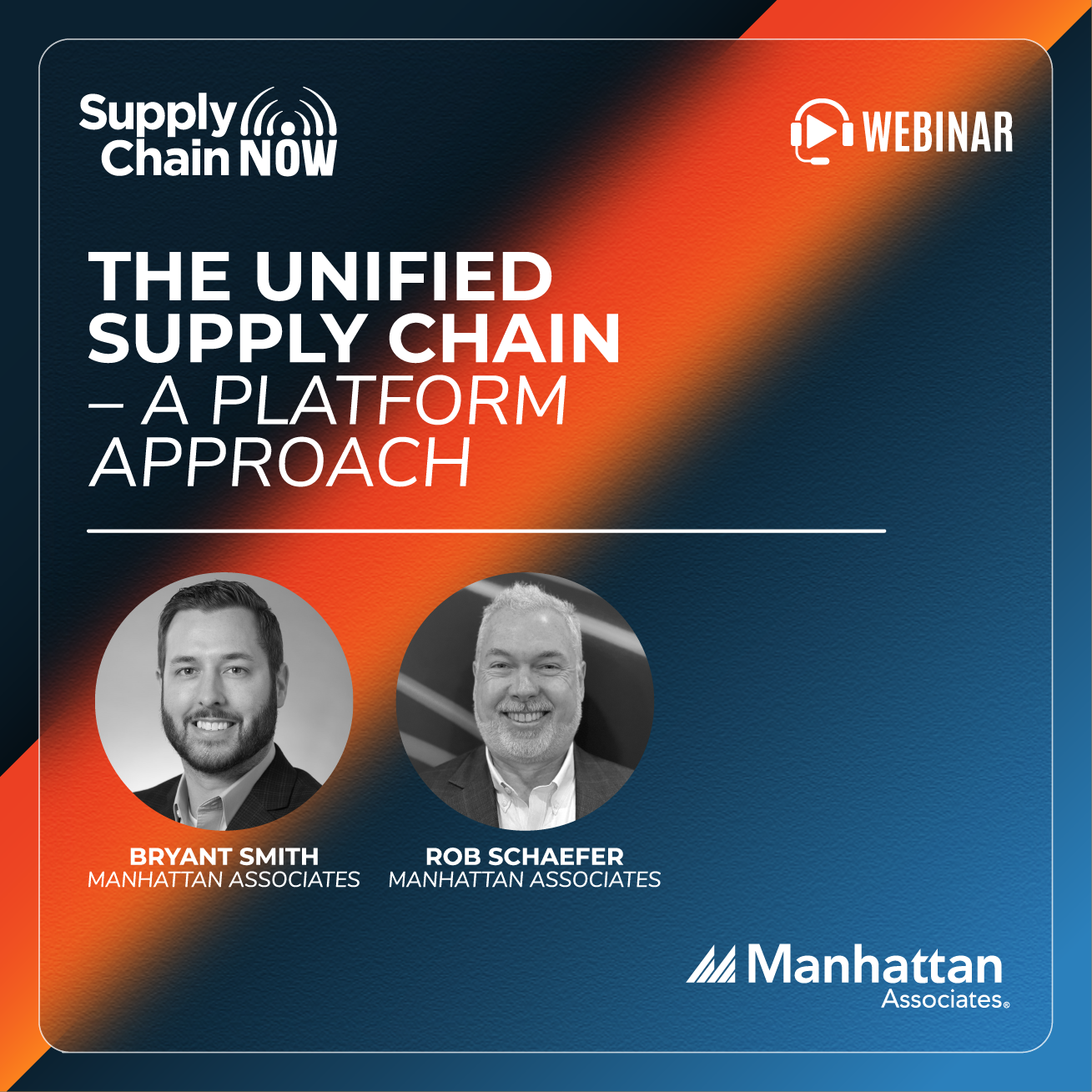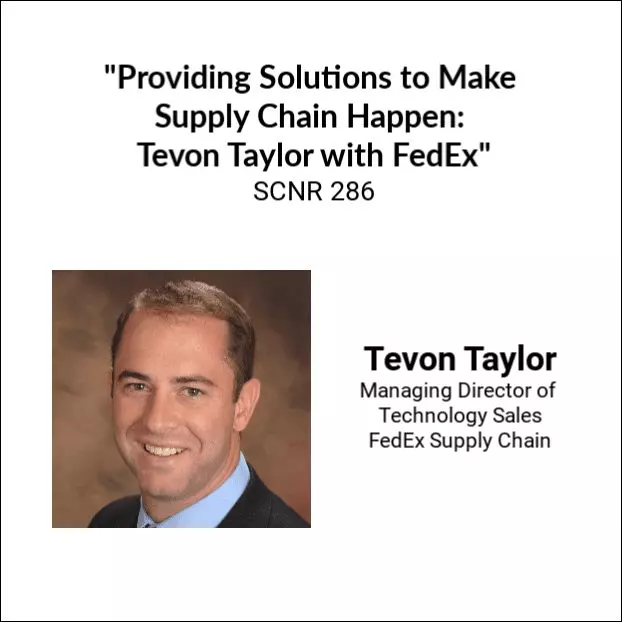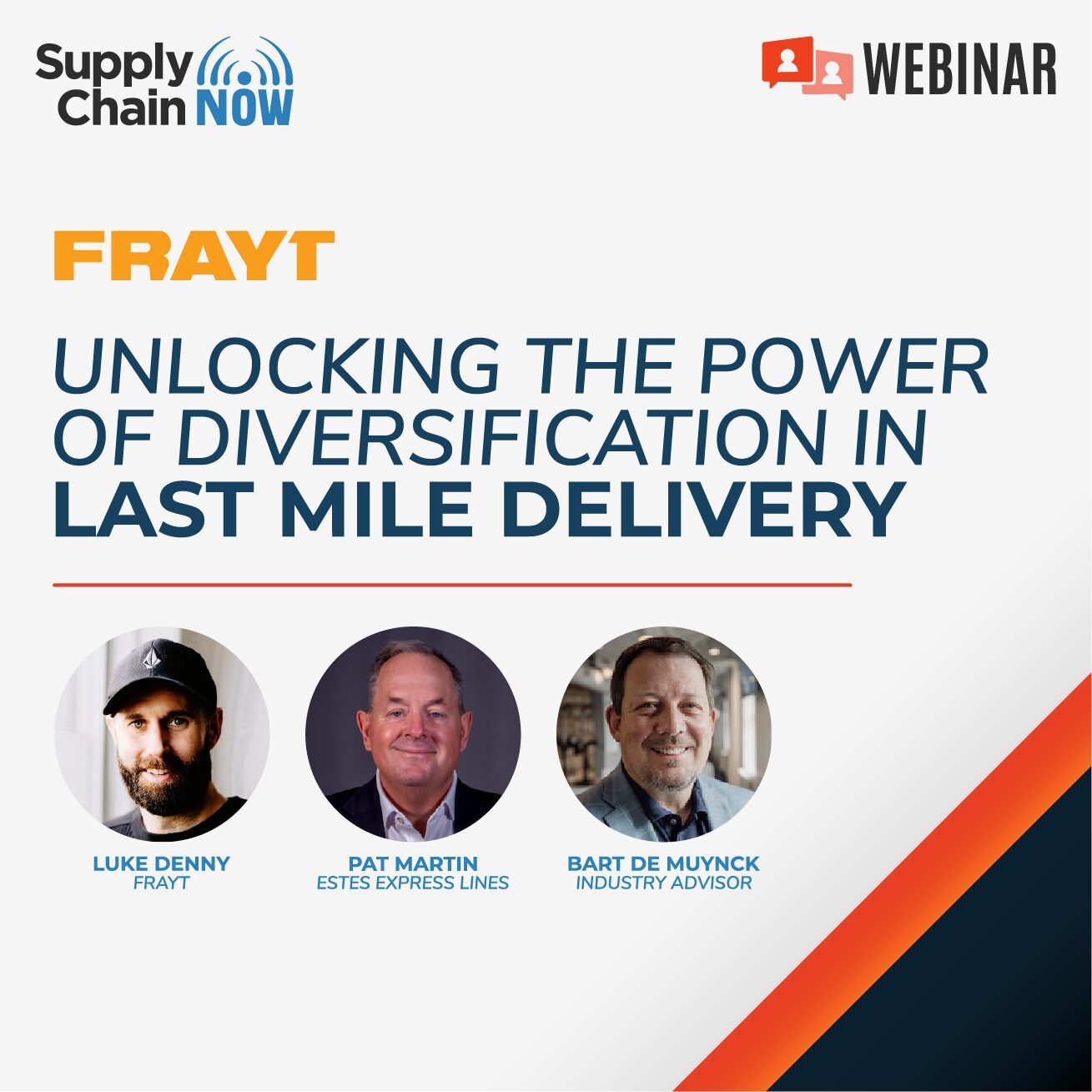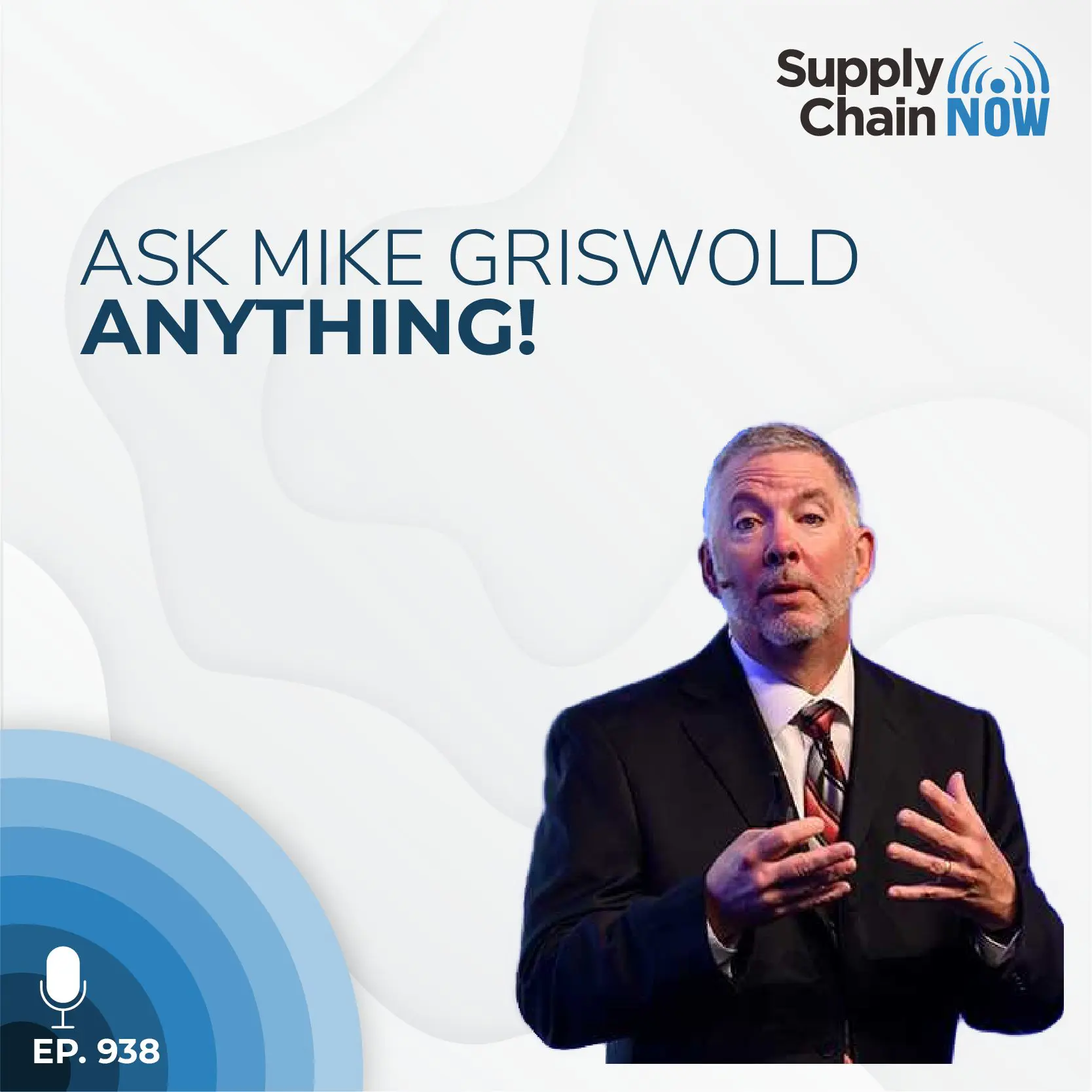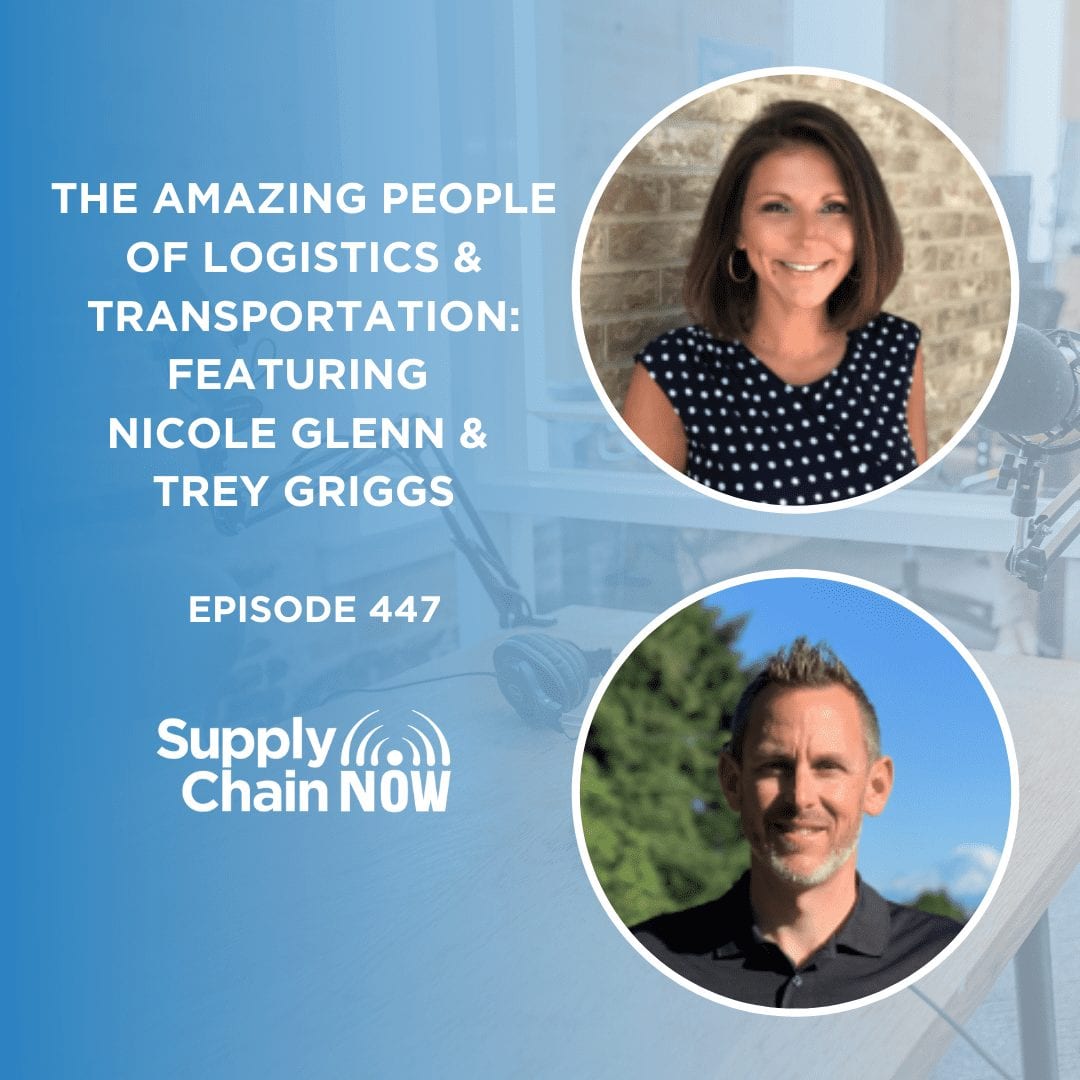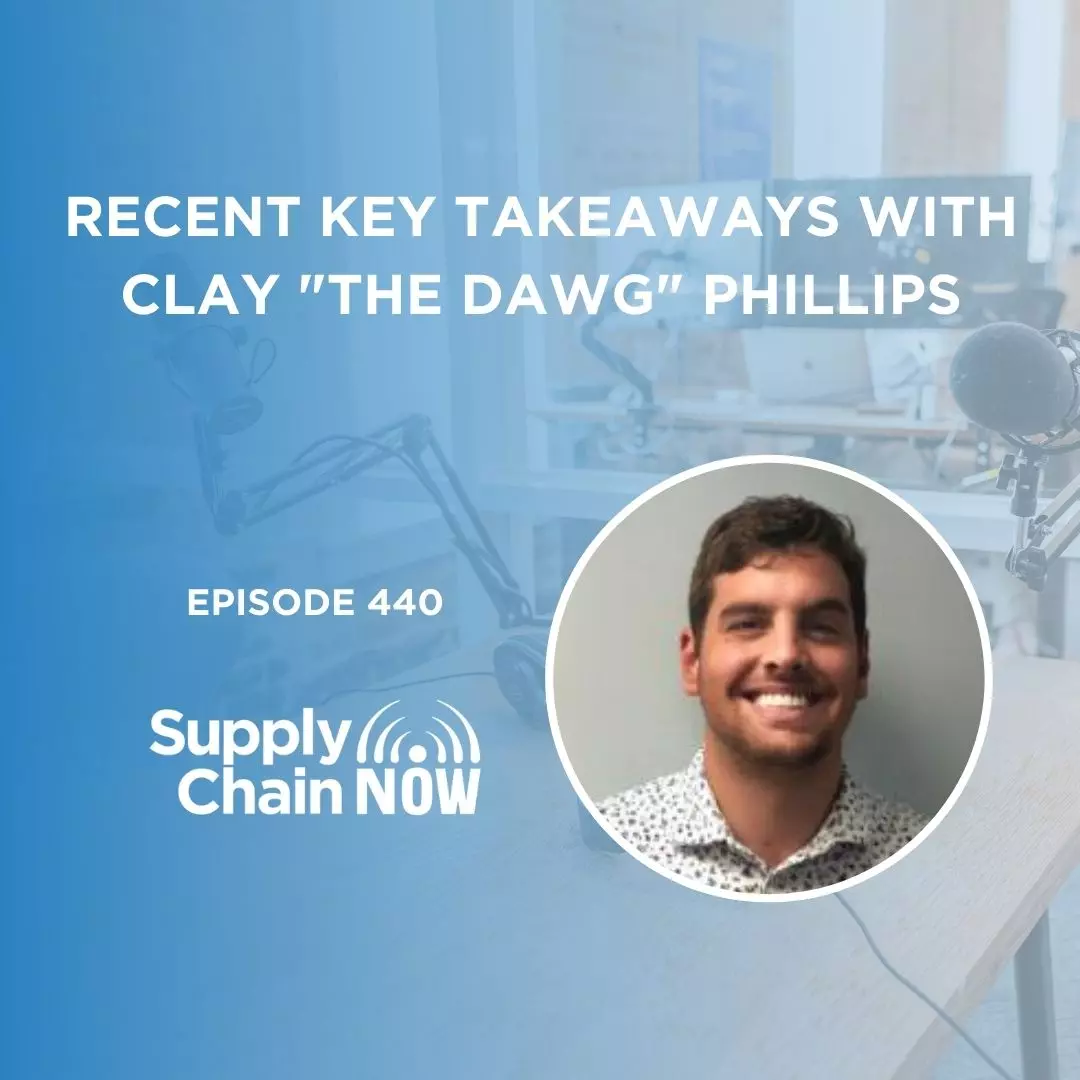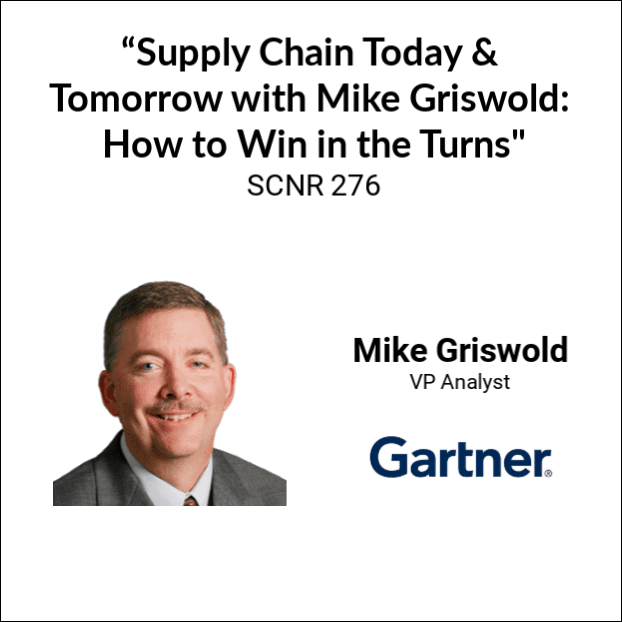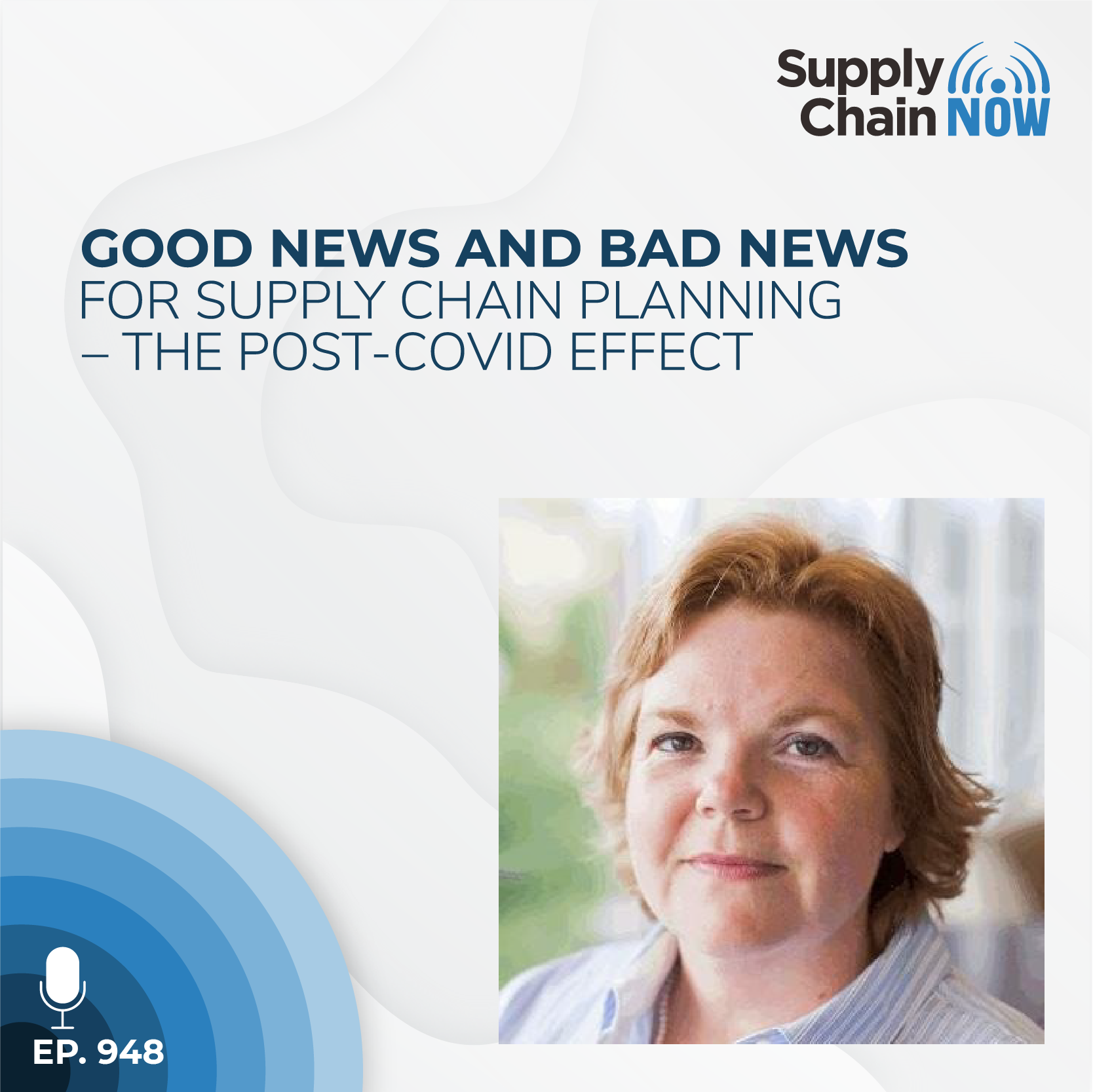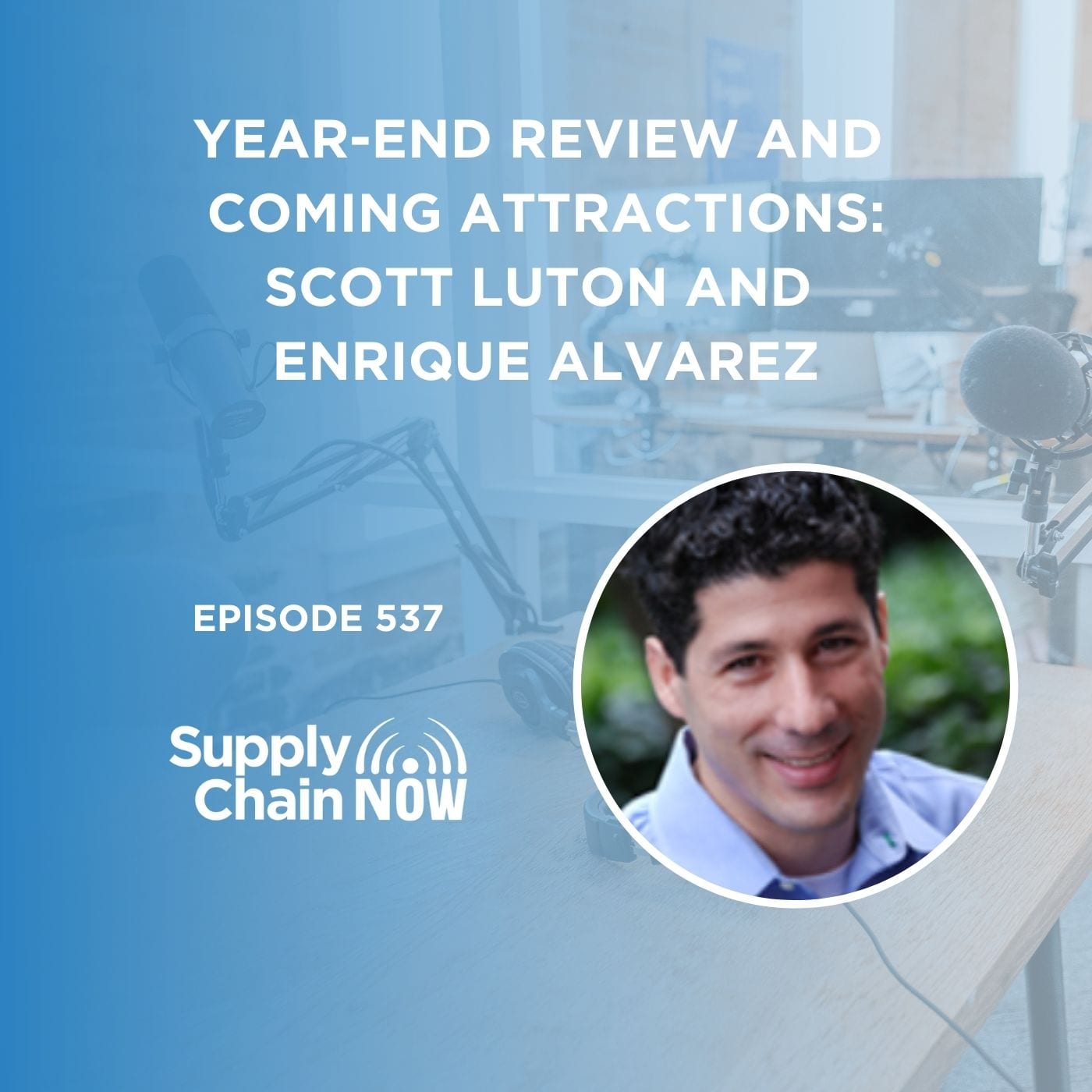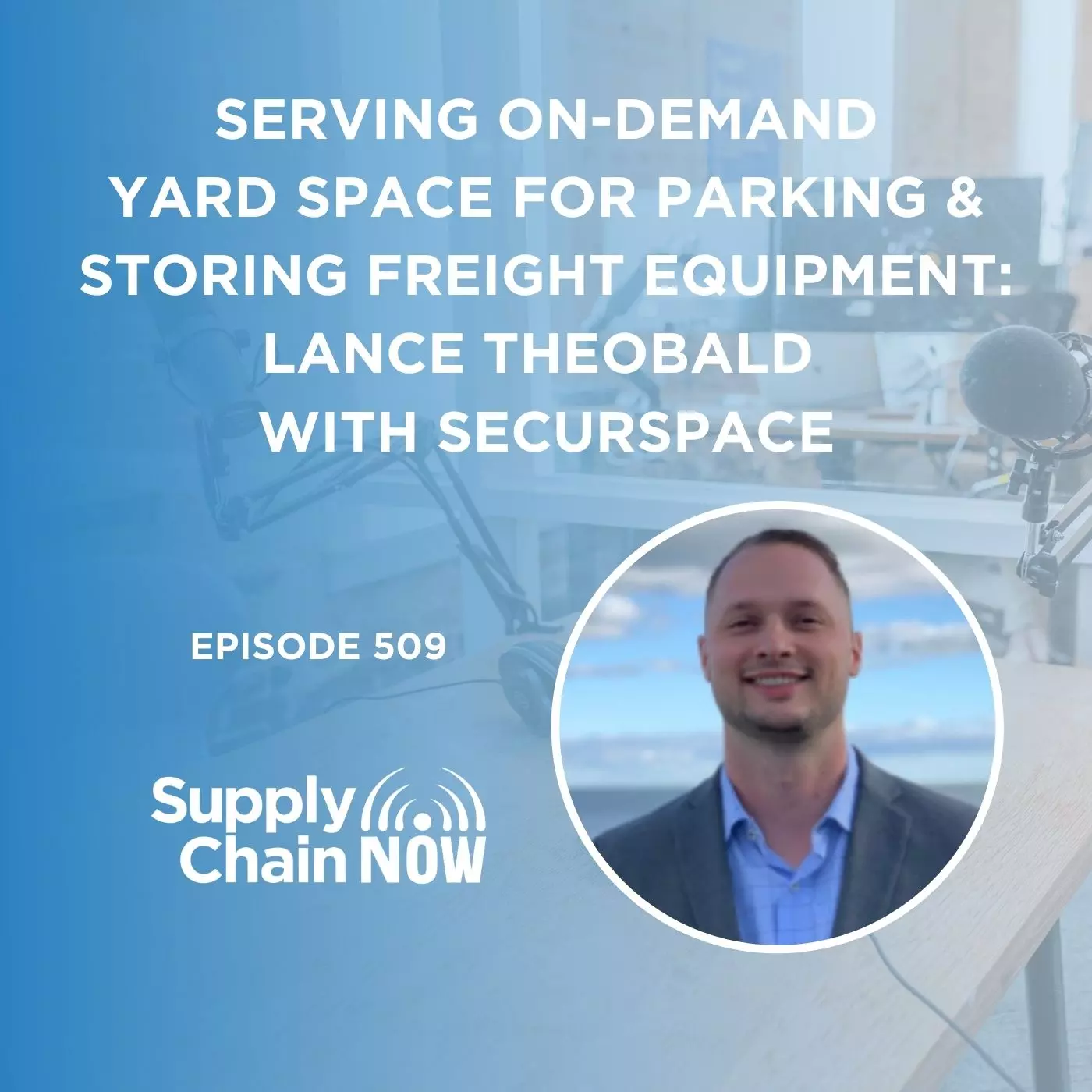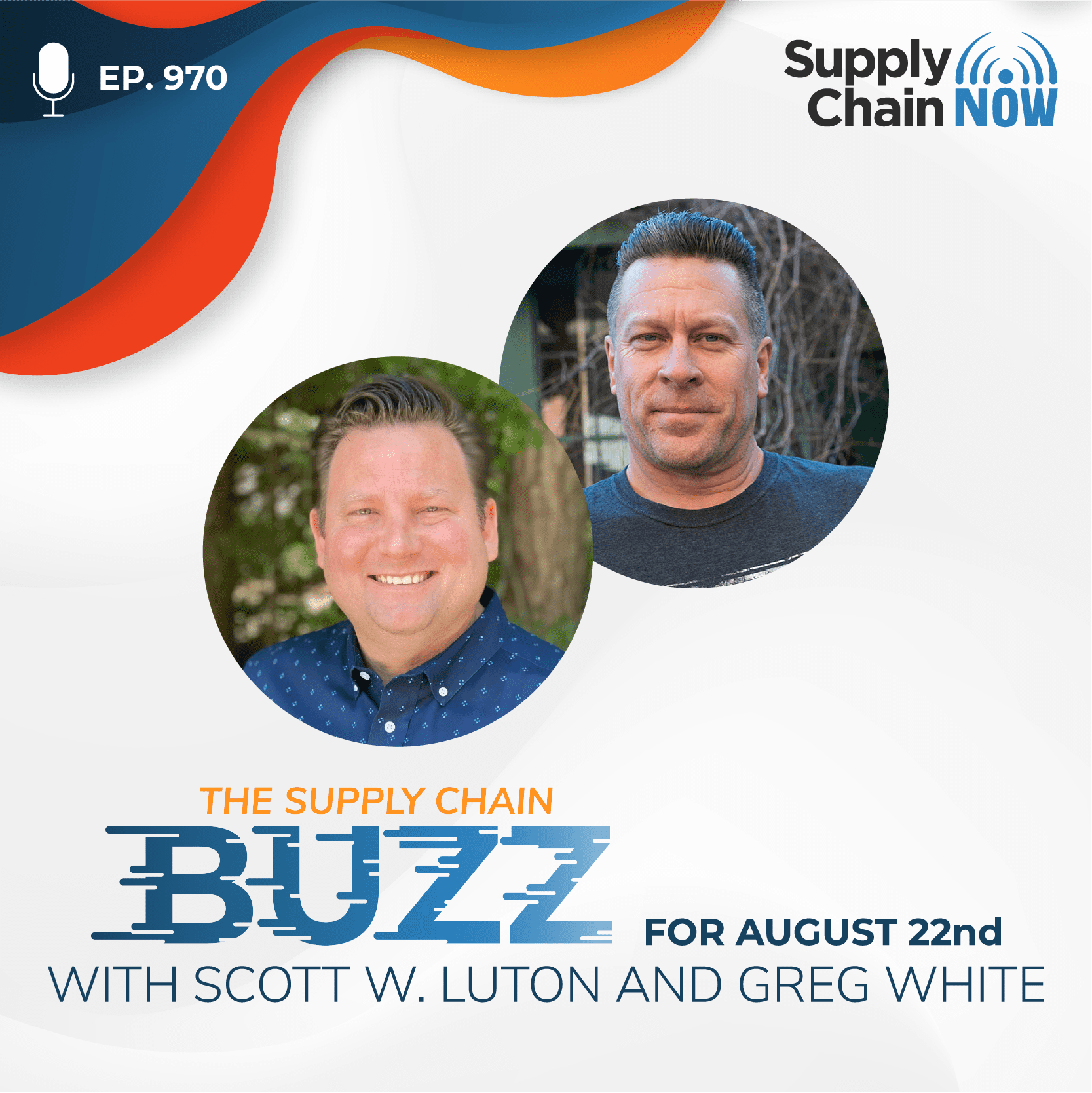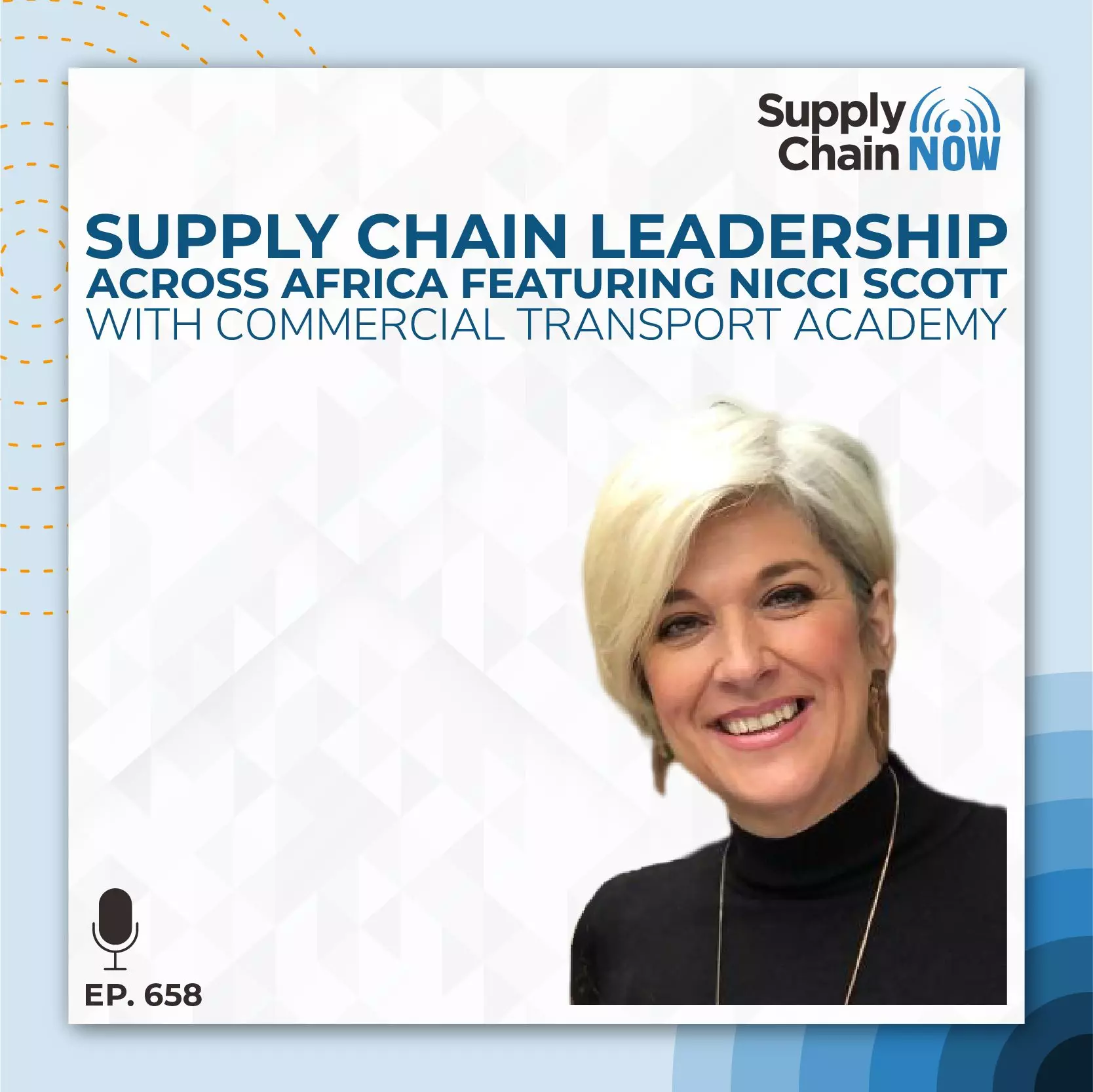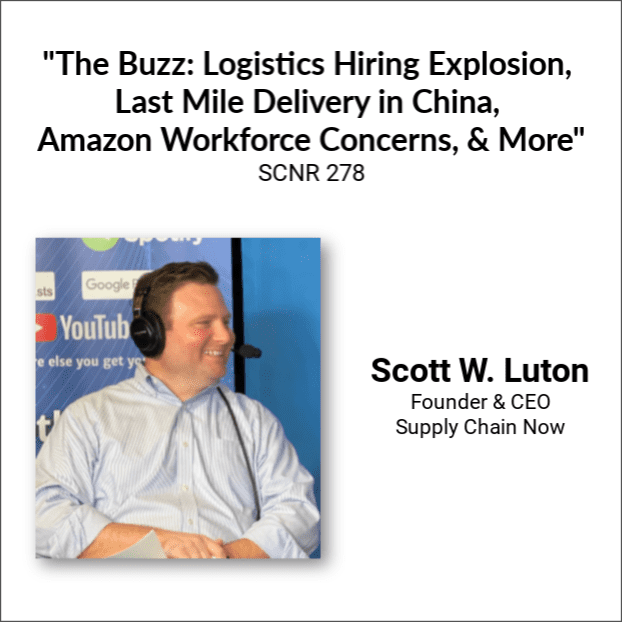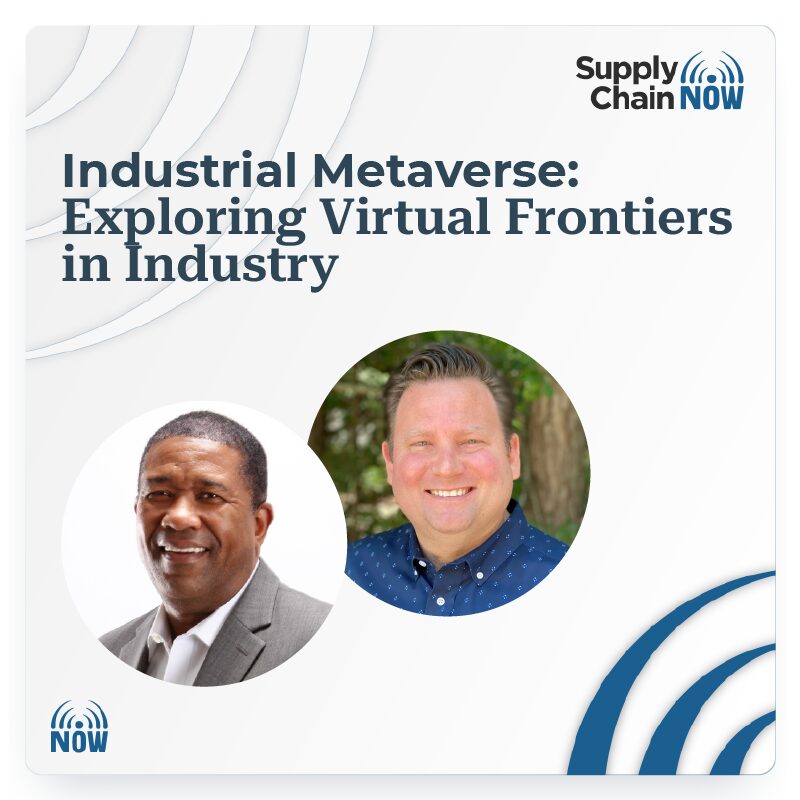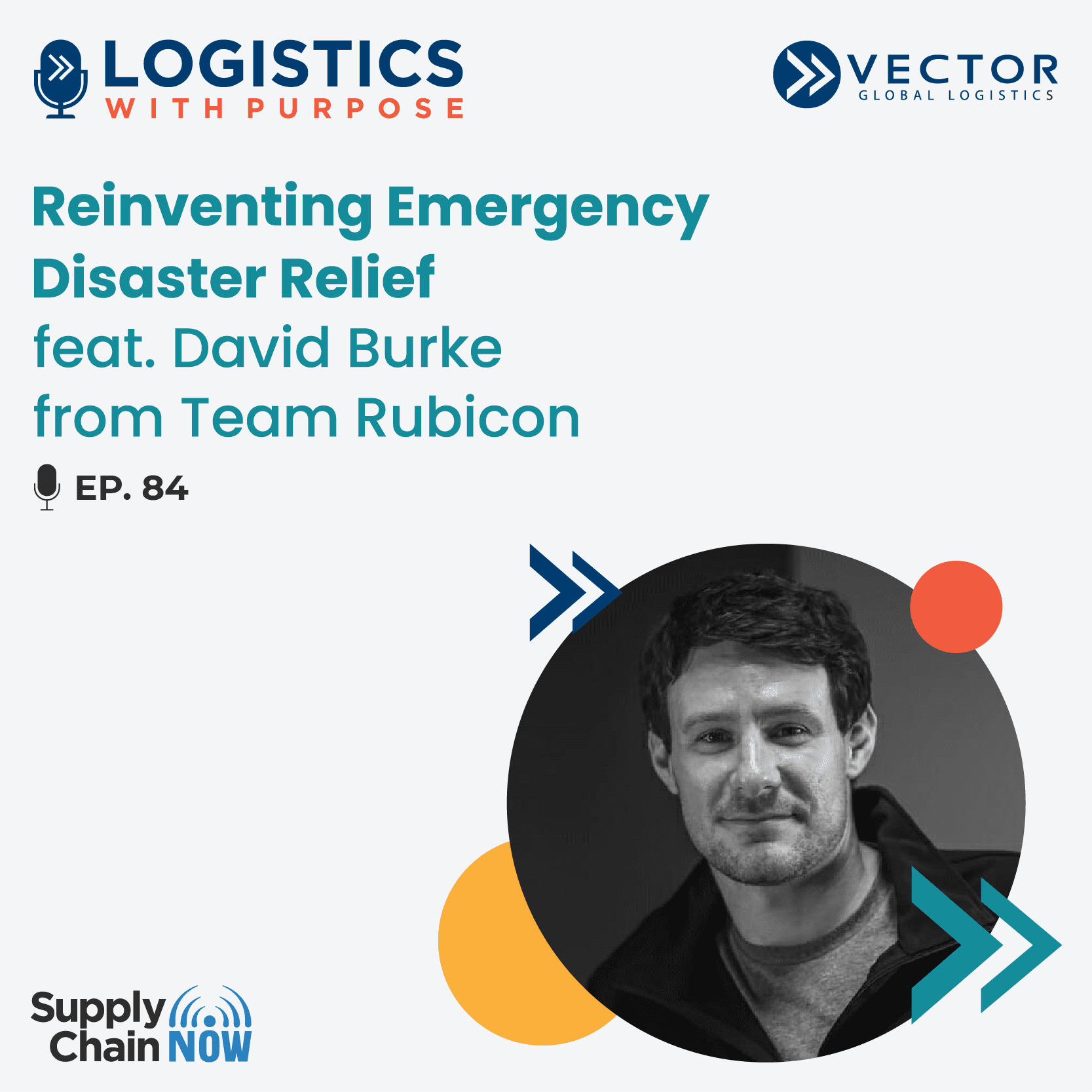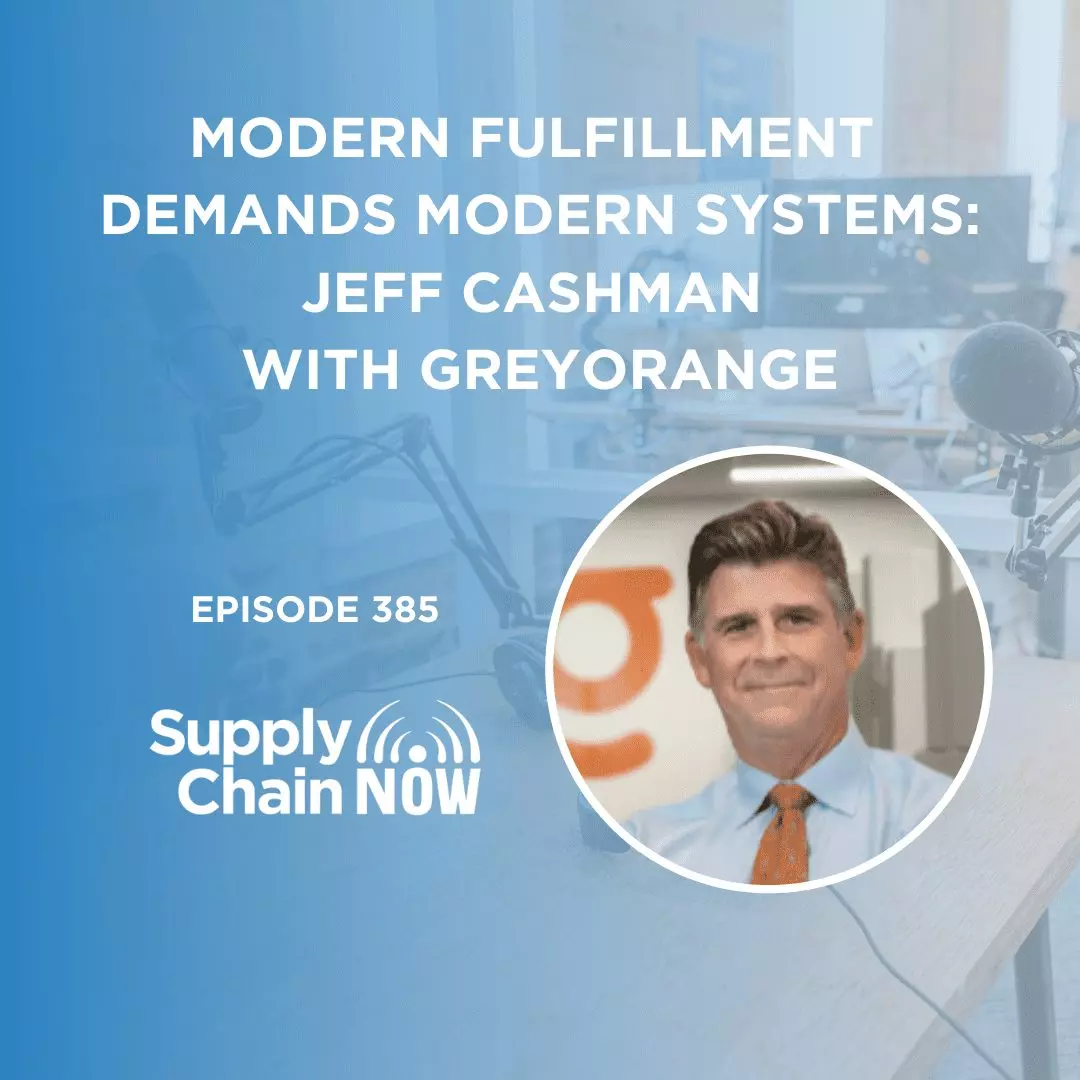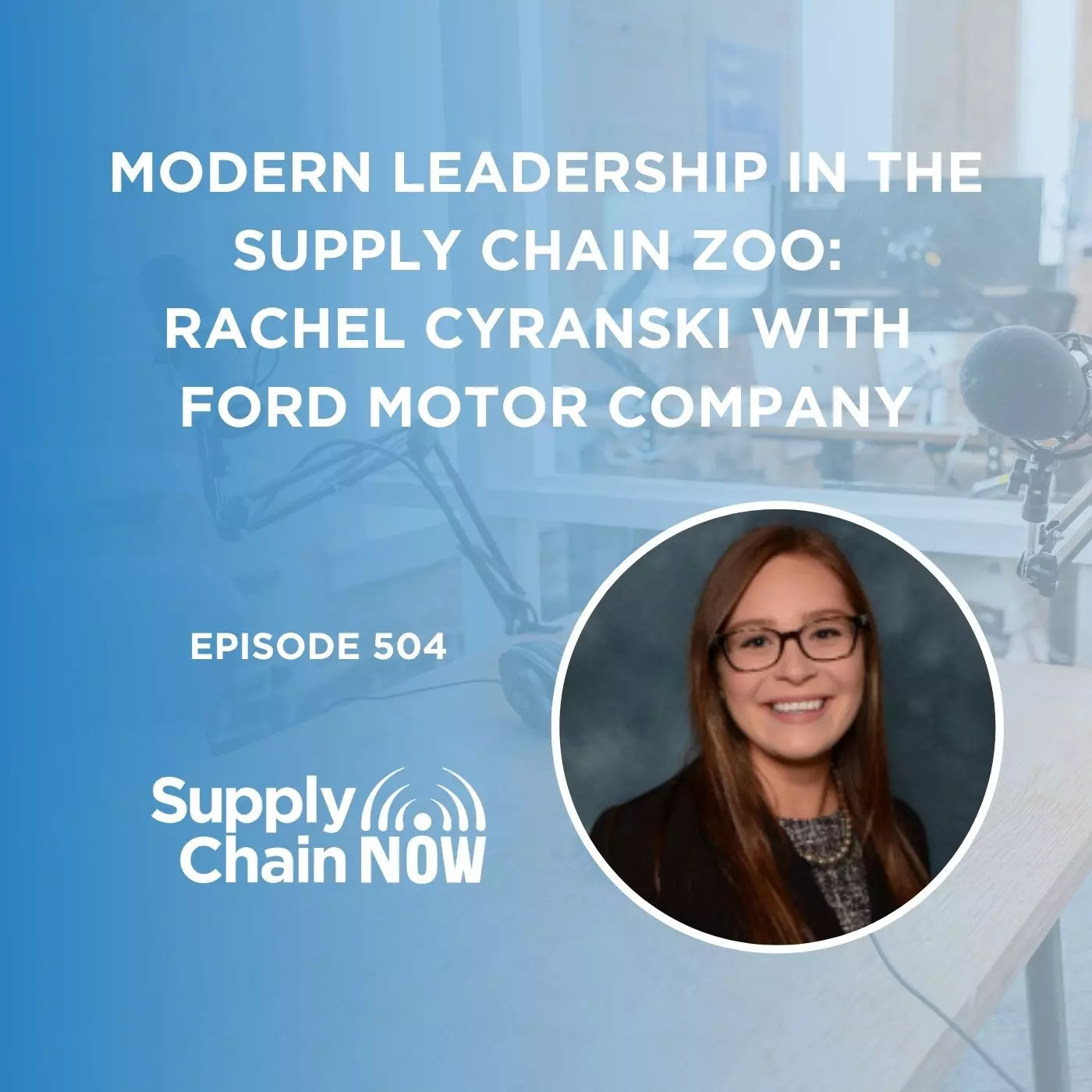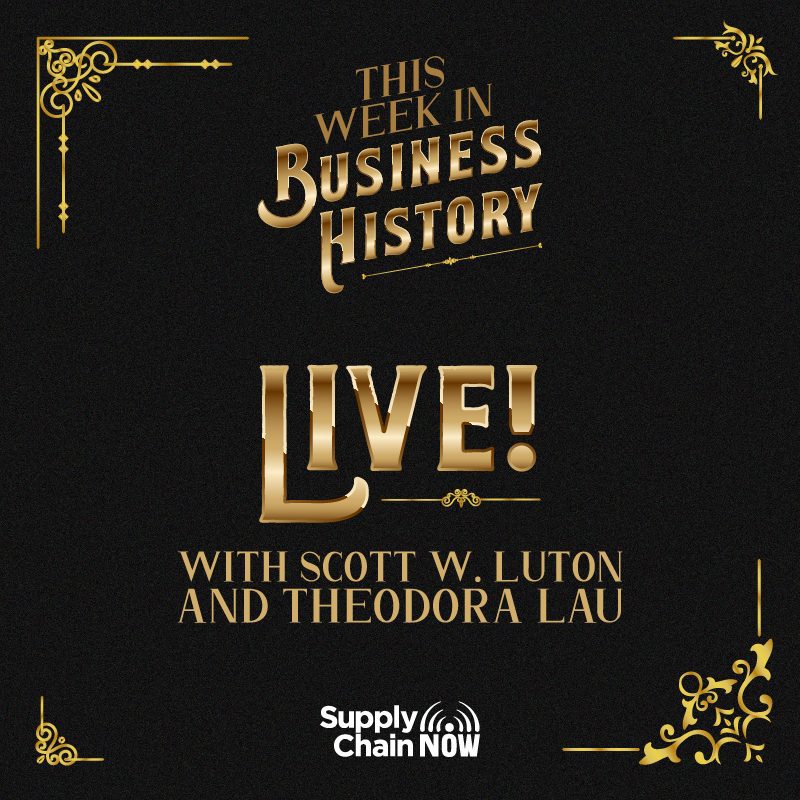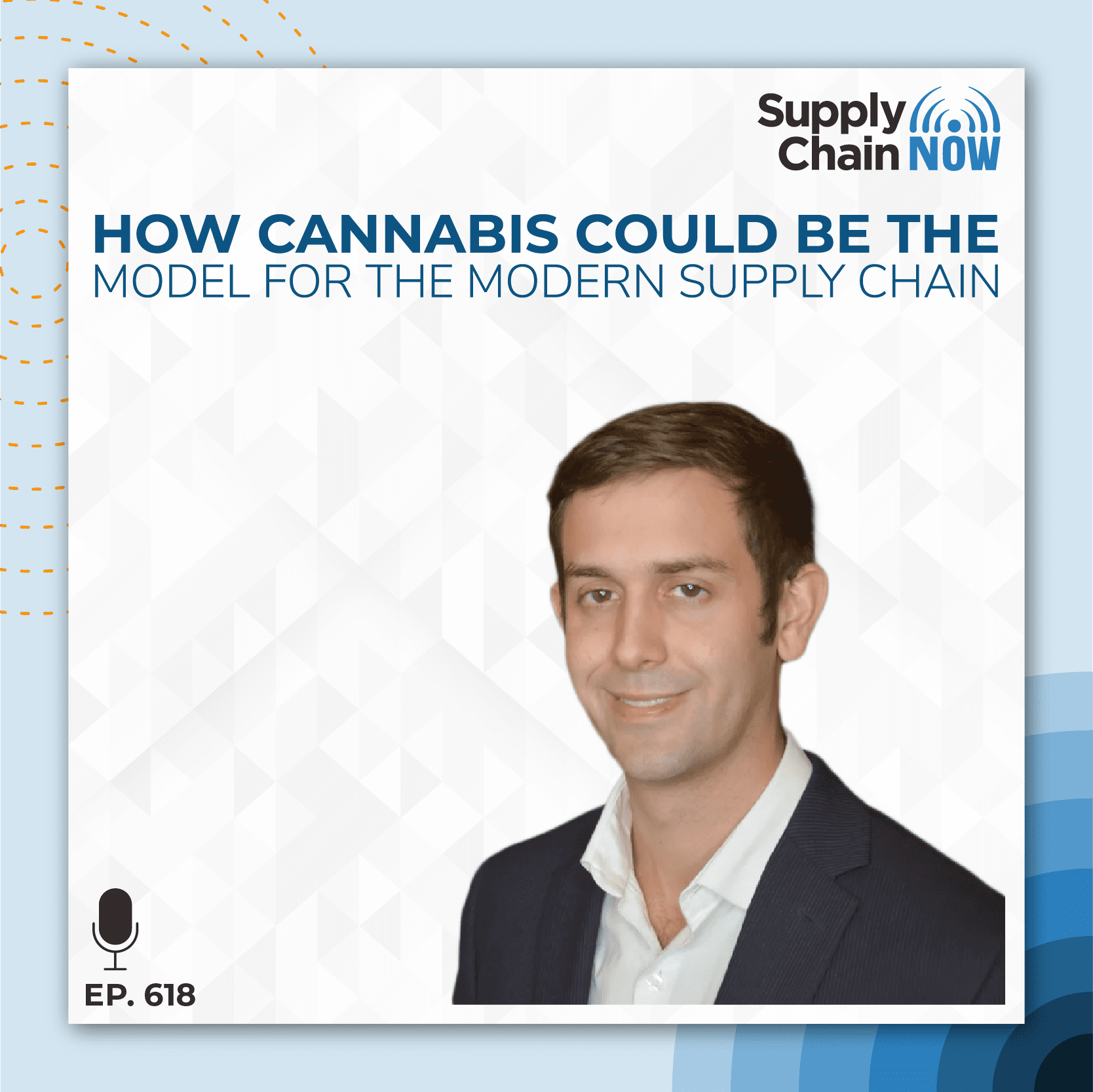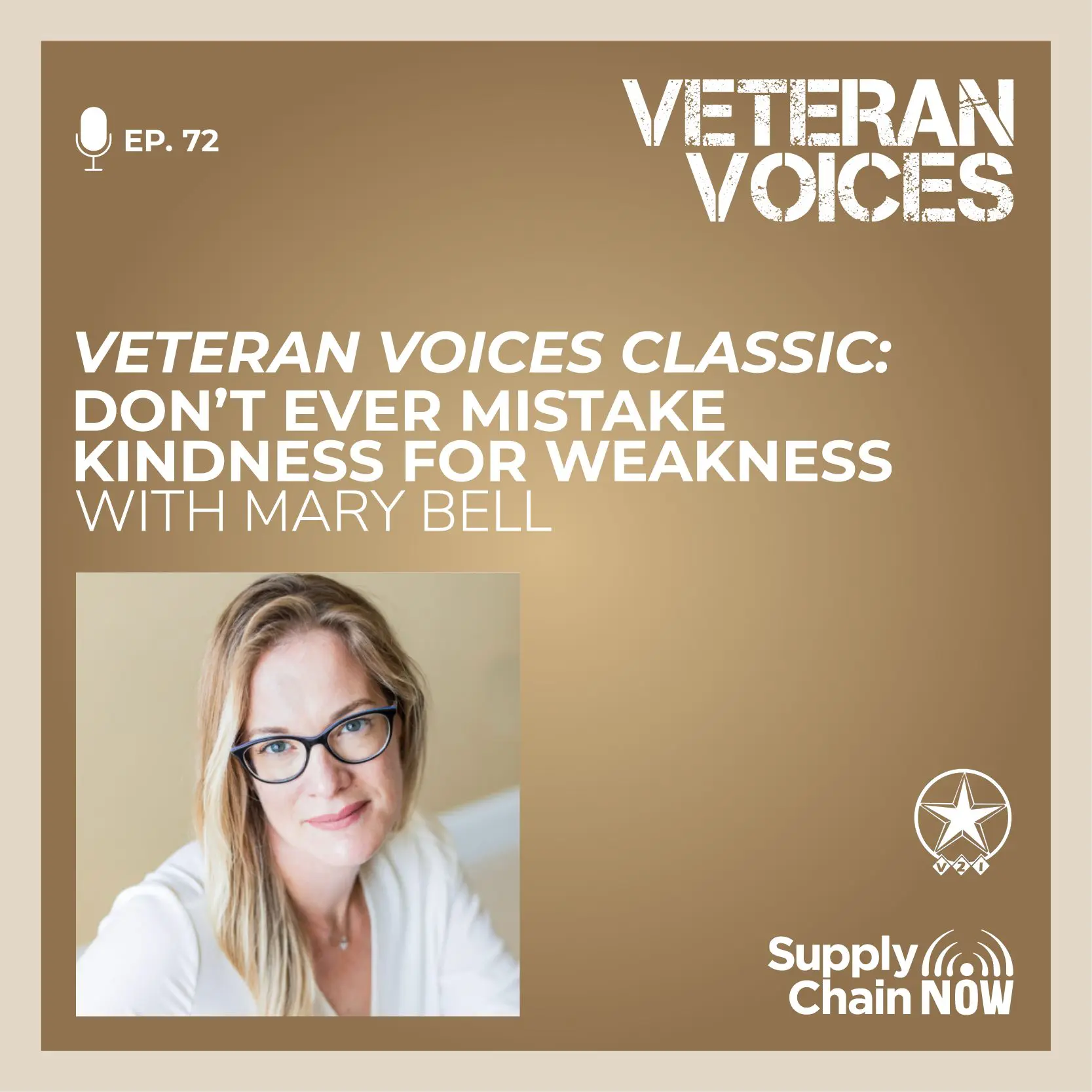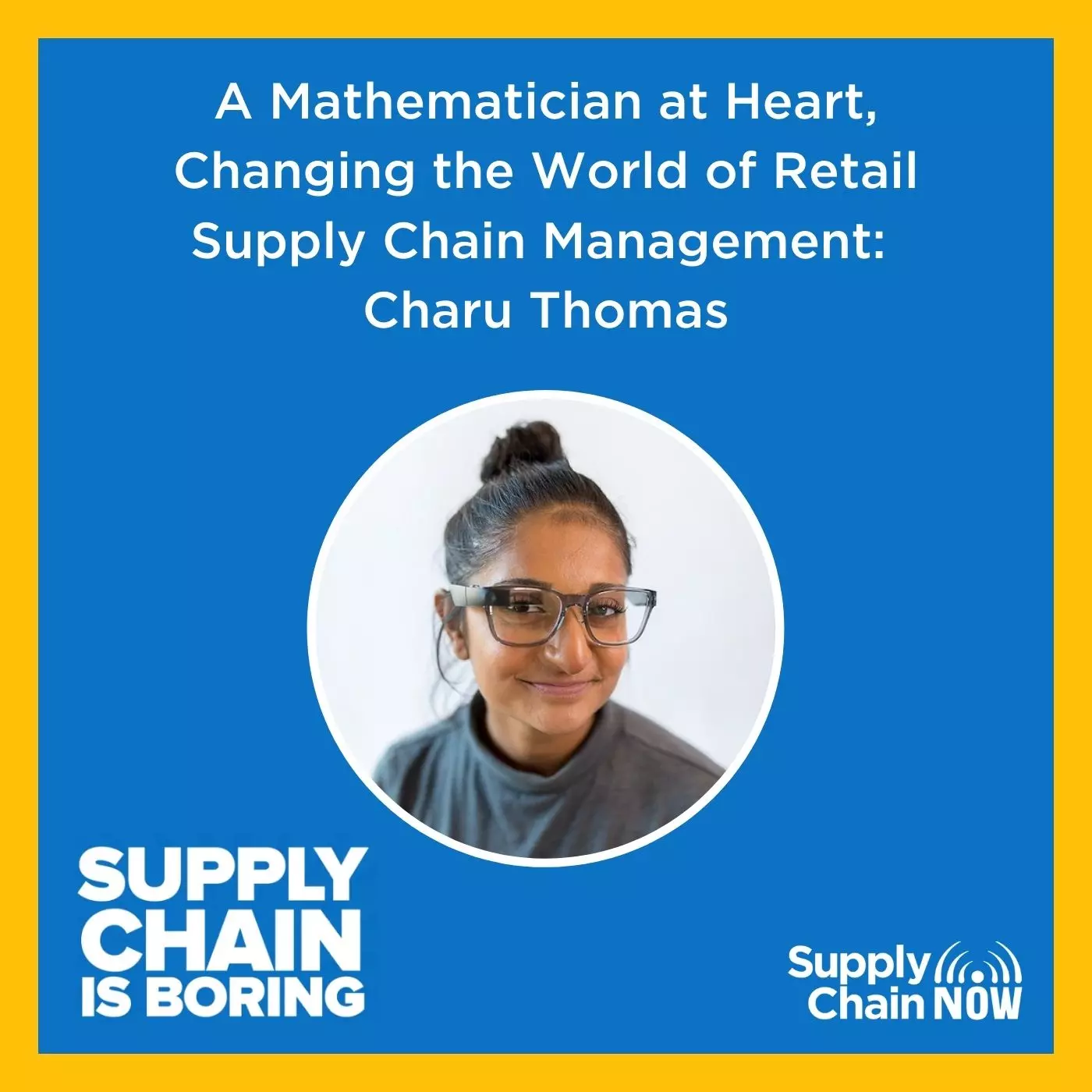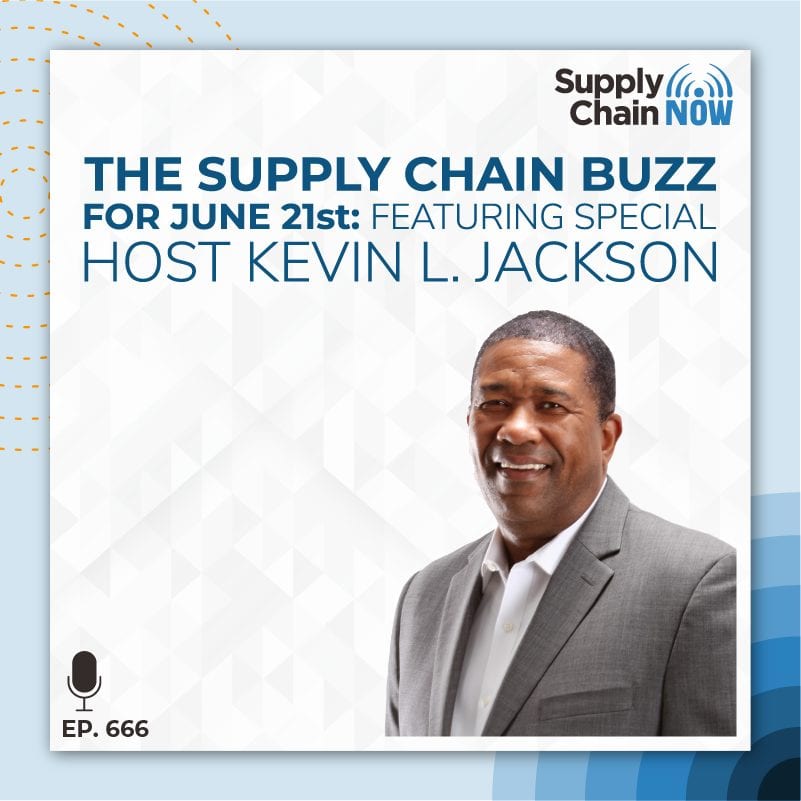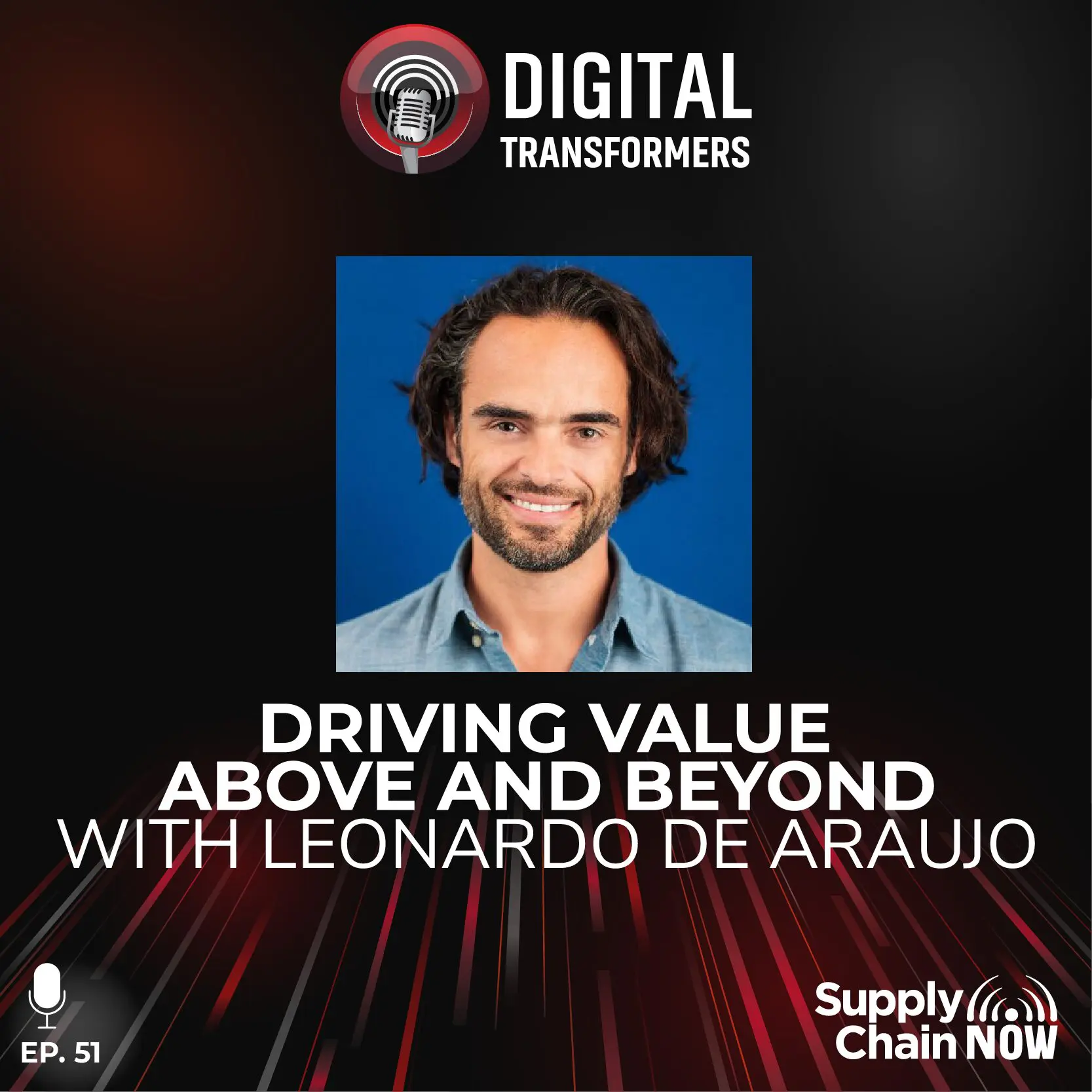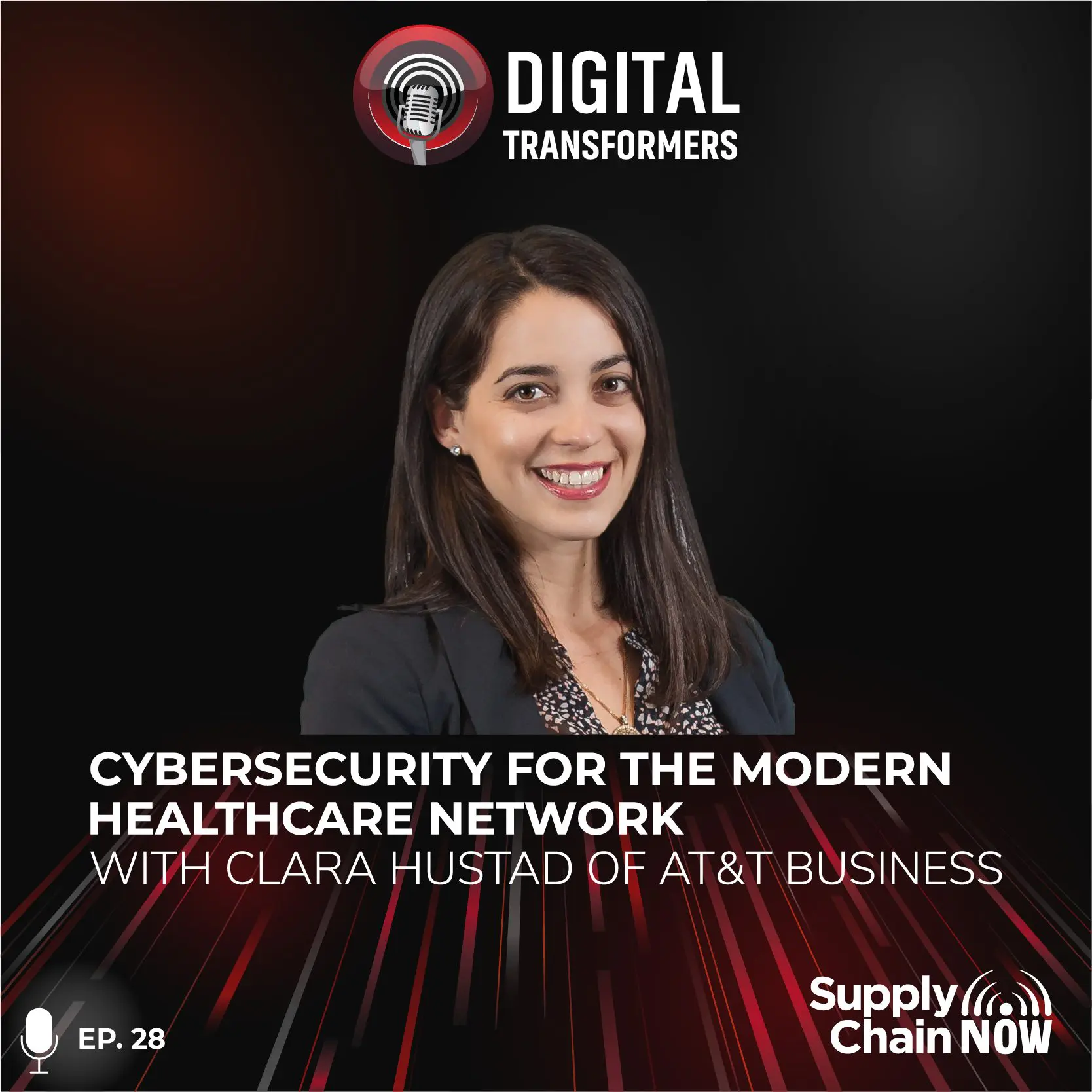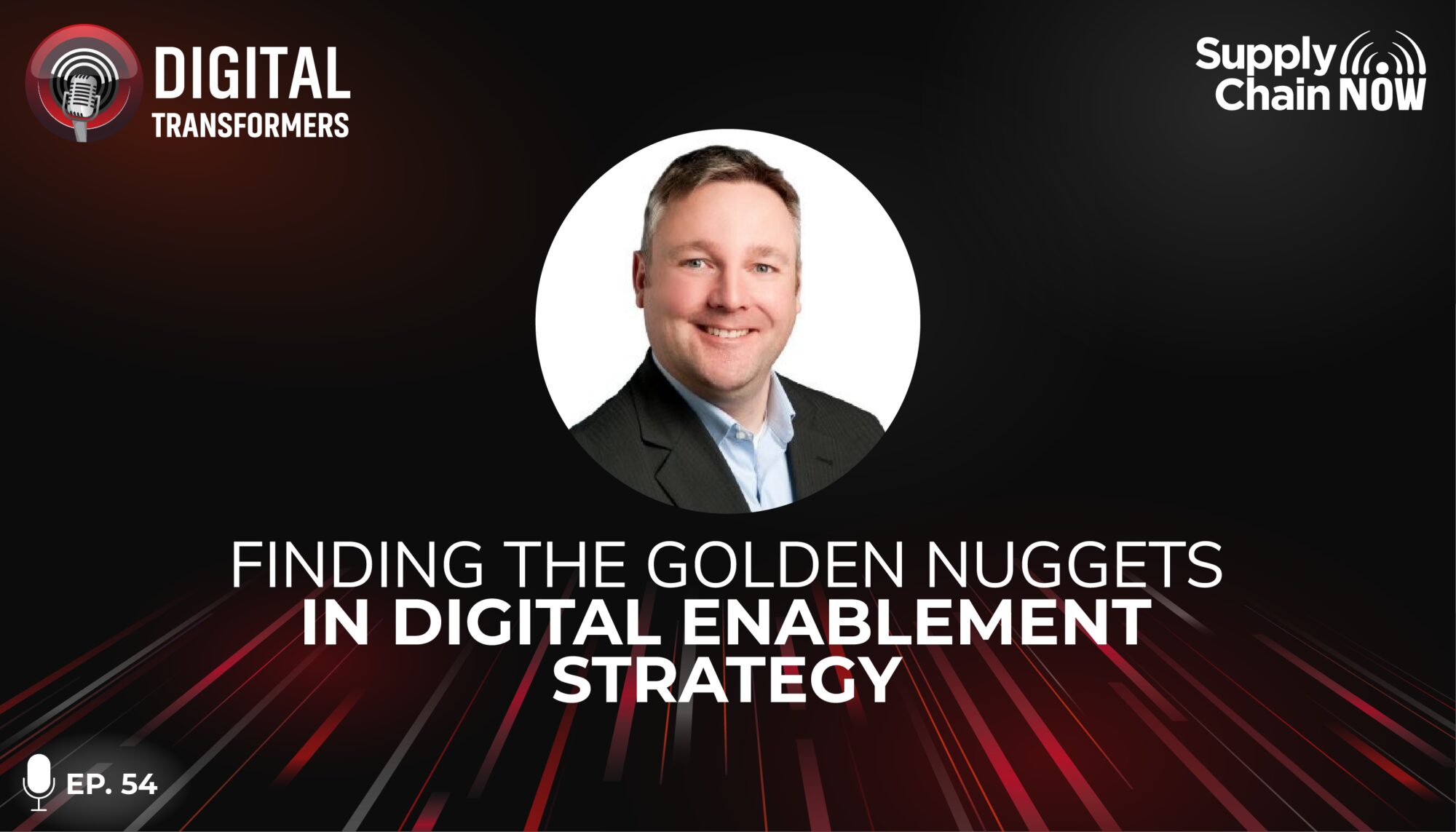
Most of us don't take enough time in the day to take a breath, read up on what's possible, and then evaluate whether something is real or just hype. A lot of the things that we thought were possible 10 years ago turned out to be science fiction dreams.
-Martin Stenzig, Chief Technology Officer at Rizing
Episode Summary
Digital transformation strategy allows organizations to drive change through significant process improvements. Enterprise resource planning (ERP) systems play a vital role on this change journey, as does subject matter expertise. Martin Stenzig is the Chief Technology Officer at Rizing, where he is responsible for driving innovation and generating measurable benefits by bringing together the latest technologies with subject matter expertise in consumer industries, human experience management, and enterprise asset management. Listen in as he joins host Kevin L. Jackson to talk about how he helps his customers imagine what is possible and then deliver against that vision.
Episode Transcript
Intro/Outro (00:01):
Welcome to Digital Transformers, the show that connects you with what you need to build, manage, and operate your digital supply chain. Join your host in a timely discussion on new and future business models with industry leading executives. The show will reveal global customer expectations, real world deployment challenges, and the value of advanced business technologies like artificial intelligence, blockchain, and robotic process engineering. And now we bring you Digital Transformers.
Kevin L. Jackson (00:33):
Hello everyone. This is Kevin L. Jackson, and welcome to Digital Transformers on Supply Chain Now. You know, digital transformation strategy is really about changing your organization through significant process improvement. And ERP or Enterprise Resource Planning can be really vital to this process. In this SAP sponsored discussion, we’re going to meet Martin Stenzig, the CTO of Rizing. Rizing is a premier SAP consulting firm that enables businesses to achieve a truly intelligent enterprise. They provide services and their proprietary applications that leverage the SAP business technology platform to Fortune 500 and small and medium sized enterprises. Thank you for joining us, Martin.
Martin Stenzig (01:35):
Thanks for having me, Kevin.
Kevin L. Jackson (01:38):
So, CTO, tell me a little bit about your company.
Martin Stenzig (01:44):
Yeah. So, our company, as you mentioned, is Rizing, Rizing with a Z as a matter of fact. We [inaudible] a premier SAP consulting firm and we’re focusing on certain topics with an SAP. So, our customers usually define us or describe us as a big boutique company because we’re very knowledgeable in certain areas, and that’s what we’re focused on. The four areas that we focus on are enterprise asset management, and there, we’re talking about technical assets. So, you’re talking about power plants, oil refineries, rail yards, that type of asset. The second one is human capital management. In a way, it’s people assets. So, we’re talking about that human being, how do we make sure that we’re training them, we’re keeping them in the organization, we’re keeping them happy, we’re keeping them as engaged as we can.
Martin Stenzig (02:38):
The third one is more a vertical, it’s consumer industries. So, especially the retail and fashion side of the business is where we have deep domain expertise combined with the SAP product expertise that we’re playing. And then, the last one, not the least one, is the SAP business technology platform these days. So, how do we take that digital technology and applying it so that we’re getting the best out of every company? How digitizing the business and optimizing the business processes? And as a matter of fact, you know, we’re seeing it almost as the glue between the SAP standard product offering to sort of improve the things that you are special in or to interface systems that SAP by default doesn’t interface. So, that’s where the business technology platform comes in and plays a big role for us.
Kevin L. Jackson (03:30):
Wow. It sounds like, really, you covered a waterfront when it comes to business and how the business is run. And as the CTO, I guess you do a lot with technology, I mean it’s in your title. So, what is your specific role when it comes to supporting your customers there at Rizing?
Martin Stenzig (03:58):
Yeah. So, I see my role as sort of driving innovation by combining, on the one hand, the latest technologies with Rizing subject matter expertise, but at the end of the day, to generate measurable benefits to our customers. So, listen, I like toys as much as the next guy, and especially as a CTO, to the great technologies that there is. But my usual intent is to weed out sort of all the stuff that looks good and sounds nice but doesn’t really bring any business value. And listen, let’s be honest, we have some of those in the industries.
Martin Stenzig (04:36):
So, for me, I sort of line them up in the order of how much business benefits and how real are they to the business. You know, we have some ideas that will be great ten years from now, but are not matured yet. And we have other things that we think that the industry should adopt right now, but people don’t because they simply don’t know that it exists. They’ve seen it on TV. They think it’s science fiction. But it’s not really out there. So, that’s sort of the other part of my role, to educate our business leaders, both internally and externally, to say, “This is what’s possible. We have done proof of concepts. We can show you the numbers. Let’s get real about it and help you and your business sort of generate and read that benefit and bring it in.”
Kevin L. Jackson (05:23):
So, I’m going to apologize here for going off on a tangent, okay? But I detect a bit of a German accent, I think. I mean, I actually visited an SAP campus there in Heidelberg and had a great time. So, I may be wrong, you know, give us a little bit of your background.
Martin Stenzig (05:46):
You’re not wrong. It has been 20 plus years though. I sort of started my career there. But then, shortly thereafter, I got an offer to come to the United States and have been here ever since. My family is here. My wife is from New Orleans. So, yeah, I’m certainly full American these days.
Kevin L. Jackson (06:10):
Oh, right. So, what prepared you for your current role as CTO? How long have you been working in technology, or working in business, or specifically dealing with this SAP technology?
Martin Stenzig (06:28):
Yeah, funny enough is I started in sort of this technology bubble 25 years ago originally as a developer, you know, a technical consultant. So, that gave me a good foundation to look into the technology aspect of things. But back in the days, I was working for a very, very small company, which helped me see not just one side of the particular business, but always sort of combine the business side with the sales side, with the implementation side. And you learn very quickly that if you promise a customer an outcome and you are working in a small company, there’s sort of a 50-50 chance that you actually have to deliver on the promise. You give a promise and you just step away and let somebody else deliver or not. So, that is one aspect.
Martin Stenzig (07:17):
Then, throughout my career at Rizing, I ran the operational day-to-day activities for the EAM line of business for a while. And that sort of gave me the other part, you know, the operational sense for what are organizations actually going through that are dealing with sort of the operational realities we all have these days. And it has gotten worse, obviously, in the past few years with COVID, with global dynamics that are surprising us every single day.
Martin Stenzig (07:50):
So, if you take those two aspects, the technology aspect on the one side, the general business understanding and the operational understanding on the other side, and bring that together, I believe that that’s sort of what prepared me really for my current role where, as I said, I’m looking at technologies, but I’m looking at it in the context of business improvements, efficiency gains, safety gains, those other things that allow me to fill this role successfully, I believe.
Kevin L. Jackson (08:20):
Wow. In the introduction we talked about, Rizing is helping their clients achieve a “truly intelligent enterprise.” And that you actually leveraged the SAP business technology platform. So, as a premier consultant, what is your business model? Do you just work with companies that already have SAP? Or what is your ideal client? What real value do you deliver?
Martin Stenzig (08:57):
Yeah. That’s an excellent question. So, we started out – and we are still at the core – predominantly a premier consulting company. So, customers ask us for help because we have certain subject matter expertise, SAP knowledge, business knowledge, industry knowledge that we’re bringing to our customers in order to make them better. And we usually like to look for customer engagements that really appreciate what I call the mutually beneficial relationship. So, you know why you’re bringing us in. You don’t just see me as sort of a person that needs to sit in the seat for 12 hours. But, really, you value my input and you see me as a full partner. Now, that’s one aspect of it.
Martin Stenzig (09:47):
Over the years, we have found that there are situation where we are getting sort of the same question – well, the same request 15 times. And that led us to the point where we said, “Okay. Why don’t we take those common themes and distilling the solution into more product offering.” So, we are having solutions that we then build on the business technology platform and even their predecessors. So, we were one of the founding members of the SAP BTP Partner Advisory Council, because we were one of the early companies that bet on SAP’s business technology platform, or the HANA cloud platform as it was called in the day. So, that is the product offerings. That’s sort of a secondary income stream that we have. So, we are by default a product company, but we’re also offering software solution in the market based on the business technology platform.
Martin Stenzig (10:44):
And today, we are seeing sort of two business models that SAP allows us to run. One is the classic SaaS model. So, we’re taking this content that we build and we’re making it available as a Software as a Service. So, customer essentially goes to a webpage, opens up the application, can facilitate their business process, and they’re just paying us a fee. They do not see or have to worry about what’s behind the scenes. Behind the scenes for us is the SAP business technology platform we use to run it.
Martin Stenzig (11:20):
Now, the second model that is getting more attractive is a lot of customers have already bought the business technology platform. So, rather than charging them for “the hosting” and the underlying basic services, again, we have a secondary commercial model that is what I call the content model. So, you’re still getting the same business benefit, you’re still getting all the facets of that application, but the infrastructure of it is used in something that you are already paying for. So, it’s your license that we’re deploying this content into, which now has multiple benefits. You know, we are using up the entitlements that you already purchased from SAP. We’re making use of the business technology platform, configurations that you might have done around single sign on we can readily use. So, a lot of benefits that are playing into it. But both of the commercial models are something that we are entertaining with our customers today and we’re very successful with it.
Kevin L. Jackson (12:17):
So, as you work with your customers and clients on this technology platform, do you actually develop other apps on top of the backend, so to speak?
Martin Stenzig (12:30):
Yes. Exactly. So, we are developing additional enhancements, extension apps to SAP. So, they’re utilizing in the core SAP standard functionality, but then enhancing or filling wide spaces that SAP is not intending to go into because they’re not big enough, or they’re unique to this particular industry, or a particular use case that doesn’t make sense for SAP to go into because it’s not sort of broadly attractive, or there’s a strategic reason why SAP doesn’t want to go into. And those are the areas that we as partners fill.
Martin Stenzig (13:05):
And the benefits that we see and that we’re bringing to the companies both on the consulting side, but also with these product sort of can usually be categorized in a couple of areas. Number one is, we’re driving revenue up, so companies sell more. The second one might be companies manage their people better, so we’re building and managing applications in order to optimize the HCM processes. And then, the third one is imperative but we still have to spill it out, companies need to work safer and in a more sustainable fashion. Sustainability is a big topic these days, as you know. Predominantly, it’s driven, in my opinion, out of Europe but it’s also now gaining steam in the United States. And lastly, companies execute their processes more efficiently, so we’re talking about doing more with less. That’s sort of the classic notion. But the other three are clearly sort of the initial drivers and then the fourth one is a common one. I would say that probably 60 percent of all of our engagements we’re driving are justified with number four, which is driving up operational efficiencies. So, doing more with less or doing more with what we already have.
Kevin L. Jackson (14:24):
So, getting back to sort of the core of our program, what does this have to do with digital transformation? What is digital transformation from you and your customer’s point of view?
Martin Stenzig (14:41):
Yeah. I think digital transformation is almost an overused word these days because everybody sort of slap it onto their project in order to get the funding.
Kevin L. Jackson (14:51):
It’s just a buzzword, right?
Martin Stenzig (14:52):
But what we’re seeing is, we’re seeing some various examples. Let me sort of talk you through a few of them. The first example I would bring is a company that moves from their old SAP legacy system that might have been implemented 20, 25 years ago to new version of SAP. For one, because SAP is going to stop the support of the old versions. But, usually, the bigger reason is that we’re seeing additional values, additional business benefits coming out of migrating to that new system and/or it’s prepping and it’s setting the foundation for building all these digital solutions on top of that, that we’re going to talk about going forward. So, as part of that, they’re really making use of new functionalities within SAP as four and SuccessFactors, so that’s sort of the core applications on SAP.
Martin Stenzig (15:46):
But then, it is also easier and more accessible to extensions that we are building in the business technology platform. And we believe that that’s really where you find the golden nuggets, as I call them. We firmly believe that the core systems that SAP has, SAP as four and SuccessFactor, they will bring you a lot of benefits in itself. But if you’re looking for sort of the – I always call it – SpaceX effect, where you’re now talking about effect of you want to get two times, three times more effective. You know, that’s usually when you’re looking into the business technology platform and it’s digital enablement to say, “Hey, here are the tools that we can use to automate processes that we had done purely manual in the past or that required a lot of labor in order to execute them.” So, that’s sort of bucket number one.
Martin Stenzig (16:40):
Bucket number two, and a simple example, would be what SAP calls a digital boardroom. We have solutions and we build solutions that allow you to walk into a boardroom with simply a URL that you open up in a web browser, rather than printing out sort of your 20 page PowerPoint presentation and a stack of paper. And then, the usual starts is, you get the first question in a board level meeting, which is, How is that lever number, the people that left the organization the last month broken down by line of business? And because you haven’t prepared for that in a PowerPoint presentation that is printed out on a piece of paper, you can’t do that. If you have the digital boardroom available, I can, literally, real time slice and dice into that information and get the insights right then and there at my fingertips and I don’t need to go back. We can make decisions right then and there, and it doesn’t have to be the proverbial, “Oh, let’s take this offline into another discussion and defer the decision to some time else.” So, that’s number two.
Martin Stenzig (17:33):
And the last example is a company that, at the moment, sends out people every five years carrying a clipboard and drive from power pole to power pole to assess whether or not the power pole is still upright, whether or not we have infestation, or even, frankly, validate that it’s still there because it didn’t in a traffic stop. So, digital transformation in that case is, for us, we can fly drones with a lighter detector, so laser imaging, across the area where those poles are established. And then, subsequently analyze that point cloud through machine learning model to automatically identify where are the ports, in what conditions are they at, what transformers are on it, how much are they leaning, how much is that different to last time. So, it’s an unbelievable efficiency gain that we can suddenly drive without having to send out people with a car and create pollution in the field. So, those are the real drivers where we’re getting really excited about digital transformation when we’re talking to customers about those kinds of scenarios, and not just simply sort of upgrading an SAP system from one version to the other.
Kevin L. Jackson (19:03):
Wow. But it seems like a lot would go into all of that. You can’t just, you know, snap your fingers and be digitally transformed. How does this happen? I imagine this is a journey that you really have to focus on. How do you lead your clients into or through this journey?
Martin Stenzig (19:31):
Yeah. It is a journey. It is an evolution. It sometimes feels like – and I lovingly sometimes describe – even ours, us and our colleagues, are still calling it [inaudible] compared to what we can do [inaudible]. But no, so education is sort of the first piece. In order to get funding on a customer side, a customer has to (A) understand what’s possible, and then (B) be able to evaluate and put a value on those improvements. And that’s really where the first challenge comes in. Because of the challenges, just the business challenges we have today that we talked about earlier, we don’t take enough time – us included as senior managers – in the day to just take a breath, read up on what’s possible, and then evaluate whether or not that’s just hype or this is real.
Martin Stenzig (20:33):
What we have found is that a lot of the things that sort of we thought ten years ago were just sort of a science fiction dream are reality today. You see the hype about GBT [inaudible] AI models, everybody’s talking about it. Now, again, a lot of that is sort of over the top, but there are some use cases which you can take out of it. And we have the same thing on the enterprise asset management side on the HCM side. But we always want to put it in perspective.
Martin Stenzig (21:05):
So, I’ll give you some concrete examples. When you’re applying machine learning to HR information, there’s a variety of things that you just need to be concerned about. Does it mean that AI shouldn’t be used in HR? Not at all. But it means that understand what you’re getting yourselves into, be prepared, have the right governance processes in place to not disclose information, to not have biased information used in the building of your model. So, all of those things are something, go into it with your eyes wide open. But that’s sort of the education that we’re talking about, that’s where we’re helping customers with. So, that’s step number one.
Martin Stenzig (21:38):
Step number two, I always call it the comfort level. SAP organizations have been run very efficiently and very well over the past few years, 10, 20, 30 years. What they’re lacking is that agility sometimes. A lot of that organization are built to run solidly as a foundation and they have an uptime guarantee of 99.99 percent. But then, what that usually lacks is the time to step back and look at the new stuff that you can do. So, again, education, but also the comfort level of IT organizations to say, While you are doing this, while you’re running your SAP system as solidly as you have, let’s look over the fence and see how does new SAP look like, and what are the components of the new SAP foundation that you need to set up? And how is the business technology platform now allowing you to do things better and be more agile, all the while having the stable core? And nobody wants to change that, so it’s not that we’re suddenly going unstable. But we want to combine the best of both worlds, a stable core with the agility and the opportunity to drive additional business benefits in the business technology platform. So, those are the things.
Martin Stenzig (23:07):
And then, we’re looking at pure business modeling. So, you’re looking at what are the scenarios, what are use cases that we should be driving, what is the cost, what’s the effort to get there. And then, frankly, what’s the change management aspect. Good news, bad news, what we have found is that, especially the younger generations and a lot of people sort of have opinions on younger generations, we find that the good news is you give them a new app and they don’t need a six day training class.
Kevin L. Jackson (23:45):
They’re digital natives.
Martin Stenzig (23:49):
Exactly. They just say, “Give me the app.” And the good news also is that they will be able to use your app. And if they are not able to use your app while you have a data point as well, which is your app is probably not intuitive enough for an easy option. But that’s sort of the change management aspect that, you know, we have to go through as part of the digital adoption. So, the human factor is probably the biggest slowdown. And it’s not a negative thing, it’s just the reality of things. People are the limiting factor in sort of adopting change in the organization. So, that’s something we have to bring into that business case as well.
Martin Stenzig (24:25):
And then, once you are there, once the organization is comfortable with the idea, once the business case is justified, then it’s about perfect execution. And that’s sort of where we pride ourselves to, and that’s the Germany in me coming out to say, “Okay. We have to [inaudible] like clockwork against our plan,” and making sure that we’re delivering or even over-delivering to our customers in order to make that successful. And, ultimately, getting the benefits out of the business case that we have anticipated.
Kevin L. Jackson (24:54):
You know, I kind of hear a common thread through the human capital management, the use of technology, and the changing or new innovative business models. And I see that as actually being open to the art of possibilities. There’s constant change and the organization has to welcome constant change with open arms. Is that something that you see in your clients or is this something that you help with when you engage with them?
Martin Stenzig (25:38):
Yes. Let me give you three examples. So, example number one is sort of almost a negative example. It’s a company that is well-established, well-entrenched, has gone through good and bad experiences, and they have sort of a preconceived notion as to what can work and what cannot work. And sometimes they went through a business transformation years ago that cost millions of dollars and was not successful. So, for that type of company, you need to have a lot of change management, people management in order to sort of resolve those worries and prove to them that we can really deliver on, on a given plan. So, that’s sort of company number one.
Martin Stenzig (26:24):
Company number two is established companies that are pushing the limits and they want to get most of their digital journey, and they take the time to evaluate and continuously challenge the status quo. That’s really fun. There are a few of them, big companies that are well established, but they don’t mind saying, “Hey, I might get it wrong. And that is okay as long as I cut my losses very quickly and then move on. But I want to evaluate that.” You know, companies like Apple, companies like UPS that are sort of driving activities in the market.
Martin Stenzig (27:02):
And then, the other segment that we’re seeing that we believe has a huge potential is the mid-market. The reason being is you don’t have preconceived notion, you don’t have any bad experiences, usually. It’s usually companies that are coming up in size, companies that are growing, even companies that are venture capital based or something.
Kevin L. Jackson (27:26):
Startups.
Martin Stenzig (27:26):
Exactly. Startups that are growing, that are just having their first experience with SAP. So, the great news there is that we can mold and bring them to sort of the perfect target state right away without having to worry about how do we get them out of their existing processes into the new normal. They are just desperate for sort of a structured business system at the core and then having the possibility to build their digital processes on top of that. That’s what we’re really excited about, so the mid-market in combination with the tools that we have on the business technology platform, it’s sort of the perfect compliment of pieces of the puzzle and make them really successful.
Kevin L. Jackson (28:11):
Well, I tell you, the SAP business technology platform looms large in everything that you’re doing, and I guess you can expect that. But I want to pull the string on that a little bit, can you explain your relationship with SAP. I mean, it doesn’t sound like it’s just a vendor-reseller relationship. You seem to be really into SAP. So, why are you an SAP partner? It sounds like there’s a lot more there.
Martin Stenzig (28:52):
Yeah. I think a variety of reasons. I mean, first of all, we fully embrace the SAP partnership and the partnership models that are out there. Sometimes I get the questions like, “What SAP partner are you?” And you can be a sales partner, you can be an implementation partner, and you can be a development partner. Well, the reality is sort of check, check, check. We’re checking all the boxes. That’s just part of it.
Martin Stenzig (29:15):
The reason for us being so aligned with SAP is that we believe in SAP’s product, philosophy, and also vision. And at some point in time – we’ve experienced this – we just had to make that decision for or against. We thought we can’t go halfway. We want to be either fully aligned or not. And it proved that it was very successful for us. You know, that relationship, that trust in SAP is reciprocated by SAP as well. They know that if they’re looking for a good SAP implementation partner, they will come to us in order to entrust with the biggest challenges. That does not mean that we’re not sometimes challenging each other, as if people come to us and saying, “Hey, I need help here. We need to do better.” And we, on the other side, will tell them what they need to do in their product or in their offerings.
Martin Stenzig (30:14):
But the great news is that we firmly believe in the big picture, in the alignment, in the philosophy of sort of driving and making the world better with technology. And then, also, the vision where they’re taking their product. And, frankly, also the efficiencies. We firmly believe that implementing SAP right drives huge amounts of business improvement and business value, digital or otherwise.
Martin Stenzig (30:43):
But that’s sort of where – now, twitching over to the business technology platform – when we’re talking about digital transformation, the business technology platform for me is sort of that vehicle that I can use in order to drive, as I said, the SpaceX effect, where I can make companies really, really efficient and give them an advantage, hopefully, an unfair advantage, in their own business to sort of overtake the competition. But that’s kind of how I like to work with my customers and make them efficient, make them better, and run the best as they can be.
Kevin L. Jackson (31:18):
So, how does SAP help you in guiding your customers through this digital transformation journey?
Martin Stenzig (31:26):
I think it’s various bits and pieces. Let me give you two examples that I could cite right away. One is on the business technology platform. So, SAP put together what they called a Discovery Center. So, Discovery Center, think of it like a catalog of use cases that show what the business value is, allows you to sort of build that out, usually in a trial environment, and if nothing else, get your feet wet. And based on what we discussed before, it sort of checks the number of boxes for me.
Martin Stenzig (32:01):
The first one is, sort of it’s an ideation, almost, or a suggestion list for customers to what’s out there, what should you look at. And I usually find two types of customers. The one customer is really good on a blank piece of paper, on a whiteboard, where you say, “Okay. What are your challenges?” And they will start scribbling stuff down. The second type of customer or person is – and I always call it – the wrench improvers. You give them a wrench and they will tell you 50 million things as to what can be made better on that wrench. But you’ve done a clean slate and they’re totally over tasked.
Martin Stenzig (32:40):
So, give them a starting point, and coming back to the Discovery Center, these use cases that you have here sometimes act as the catalyst, as the starting point to start the discussion to say, “This might not be 100 percent what you have in mind, but is this sort of in the area? Is this sort of sparking some other ideas?” And then, we’re going off on all kinds of tangents as to what we can do, and what we can do better, and how this is not quite what I want, but this is what I want. So, that’s great.
Martin Stenzig (33:09):
And the other side is that we can test out those offerings that SAP has and sort of put our own subjected expertise to make customers better. So, that’s kind of number one, where SAP is sort of helping us guide the customers through their digital transformation journey. The second one is more on the product side. You know, SAP has an offering called free tier. Free tier allows the customer to test our digital enhancement.
Martin Stenzig (33:39):
So, as a customer, if you are the whiteboard customer or the clean slate customer that has a great idea but isn’t really sure whether or not (A) it is real or can be made real, now, an SAP helps you sort of start that journey by saying, “Hey, you know, let’s test it out. Let’s build it out. Take a small amount of money, put it to use, we’re giving you, essentially, a free environment.” And then, you will get to a normal milestone decision point to say, “Okay. It was really successful. Let’s move it into production. And you can do that with a free tier offering.” Or the alternative is, “Hey, we’ve spent X thousand dollars in order to test this out. We’ve come to the conclusion that the machine learning model, we can’t get it to higher than 80 percent, so we can’t really use it in a production environment. We have to wait for another four or five years.” And that is a good data point as well, but at least you have done the evaluation and you started the digital journey. You’re moving in the right direction. You’re moving up that sophistication journal.
Martin Stenzig (34:47):
So, those are two examples of SAP guiding customers. There are many more examples, but I felt like those are the two applicable that are probably resonating with a lot of people that are still on the sort of in the infancy on that digital journey, rather than sort of on the upper echo one of the curve.
Kevin L. Jackson (35:08):
So, talking about those that are, you know, looking at this digital journey in front of them, what are your recommendations for these companies that are trying to deal with ERP digital transformation? You know, it could be a big hairy beast out there, I’ll be scared and just run away.
Martin Stenzig (35:34):
It is. And trust me, even in my job, it’s the hairy beast that will never stop me. Just because you think sort of – I don’t want to say off the top of the mountain – you understand most of these technologies, and then one comes along and you say, “Well, there’s something else for me to look into and then invest in.” But let me sort of give you the top three. Number one, I would say, get and stay informed. It’s hard to leave the operational reality behind, but inform yourself about what’s possible, benchmark with your peers, and invite your vendor to do an innovation week once a year. You know, we, and probably our partners, competitors in the system integrated community, are probably happy as well to sort of give you an overview as to what we’re doing, what we have done, but then also what we think you should be doing. So, don’t get hung up on what has been done in the past, because then you are going to be a lagger. Then, you are waiting, sort of you’re always minus two years behind the next guy. Be the guy that wants to challenge the status quo.
Martin Stenzig (36:37):
Number two is find a trusted partner. Not just a partner that gives you the lowest bit, but the one that is honest with you, and sometimes tells you the things that you don’t want to hear. What I’ve found is that the best relationships and the most long-term, the most fruitful and successful relationships I’ve had with my customers are the ones where it’s way more than just sort of a vendor relationship. It’s really a partnership.
Kevin L. Jackson (37:05):
A trusted partner.
Martin Stenzig (37:07):
So, you can call each other up even after hours and say, “Hey, something is off. We need to fix this.” But sort of build that relationship. And it’s worth way more than the dollars and cents that you see in an RFP response. And if you don’t value that, then you have to deal with the standard vendor relationships that you’re probably dealing with today. But my advice would be, find a trusted partner that is not just building fancy PowerPoint decks, but really the trusted partner that can also execute on the plan that you’re putting together with that partner. Because if the partner tells you that they can do that, they should be able to execute it. And if they don’t, then, well, give us a call.
Martin Stenzig (38:00):
And third, embrace new technologies. In the SAP case, embrace the business technology platform. It’s there to stay. There were probably years where you, as a company and customer, thought that, “Hey. I don’t know whether the business technology platform has longevity.” I’m telling you, it’s there to stay. It is solid. We’re doing lots of work on it. It’s a great tool. And it really has and provides business value. And I’m not advocating on jumping to the next shiny toy every single time a new toy comes out. But be open and run simple and short proof of concepts to see what technologies can really do for you and your business. Companies need some time to get comfortable with new technologies. So, a proof of concept or a pilot is usually the right size to determine the value, refine any cost estimates that you might have.
Martin Stenzig (38:47):
And more important than anything, start that human change management journey that I was talking about to take even your own internal IT team and sort of get them comfortable with the new normal, which is, everything is going to be in the cloud. And sometimes you’re having sort of hybrid environments where cloud suddenly comes back on premise or you have an on-premise cloud. But the reality is, and we’re seeing that more and more, all of your development is going to be done in the cloud, whether or not you’re running the program on-premise or not, that’s one thing. But 99 percent of what we are doing these days is all cloud-based or comes with cloud-based technologies. So, you need to spin up internally, knowledge-wise, on those paradigms, on the language that is used, on the approaches that I used. So, again, embrace that technology because it’s there to stay and it’s not something that you can just think away. So, those are the three, I would say, to say if you’re dealing with digital transformation, those are my top three that I would give you as a suggestion.
Kevin L. Jackson (39:55):
Wow. Thank you. Thank you for your time and perspective today. It seems like it’s really all about the relationship. I mean, when you think about digital transformation, many people, technology is top of mind. But you are really talking about the importance of the relationship. And I really like that approach. But, unfortunately, our time has come to an end, Martin, so how can my audience learn more about Rizing and your approach to digital transformation?
Martin Stenzig (40:35):
Well, the good news is that it’s very simple. So, Rizing, you can find, obviously, on a webpage at www.rizing.com, and Rizing is spelled with a Z, just to remind you, not with an S. So, we were there before SAP came up with a RISE model, just for the record
Kevin L. Jackson (40:56):
Just to be clear.
Martin Stenzig (40:59):
And if you want to reach me or follow me, simply enter my name, Martin Stenzig, into Google, LinkedIn, or Twitter, and you’ll find me. That’s the advantage of having a fairly unique name. There are not too many Martin Stenzig’s out there, so [inaudible] for my name is pretty high.
Kevin L. Jackson (41:18):
Wow. Thank you. And we’ll have those links in the show notes as well. So, thank you, thank you very much. And in closing, I would like to invite everyone to check out the wide variety of industry thought leadership that we provide from supplychainnow.com. And you can find Digital Transformers and Supply Chain Now wherever you get your podcast, so be sure to subscribe. So, on behalf of the entire team here at Supply Chain Now, this is Kevin L. Jackson wishing all of our listeners a bright and transformational future. We’ll see you next time on Digital Transformers.
Intro/Outro (42:03):
Thank you for supporting Digital Transformers and for being a part of our global Supply Chain Now community. Please check out all of our program at supplychainnow.com. Make sure you subscribe to Digital Transformers anywhere you listen to or view the show, and follow us on Facebook, LinkedIn, Twitter, and Instagram. See you next time on Digital Transformers.
Featured Guests

Martin Stenzig is the Chief Technology Officer for Rizing. He is responsible for driving Innovation by combining the latest Technologies with Rizing’s subject matter expertise to generate measurable benefits to our customers. Before joining Rizing, Martin was the North American President of Rizing’s Enterprise Asset Management line of business (formerly known as Vesta Partners) where he lead the growth of products and services within the North America market. Martin has managed several large implementation projects all across the globe. He has worked closely with customers throughout his career to build solutions in the SAP eco system. Connect with Martin on LinkedIn.
